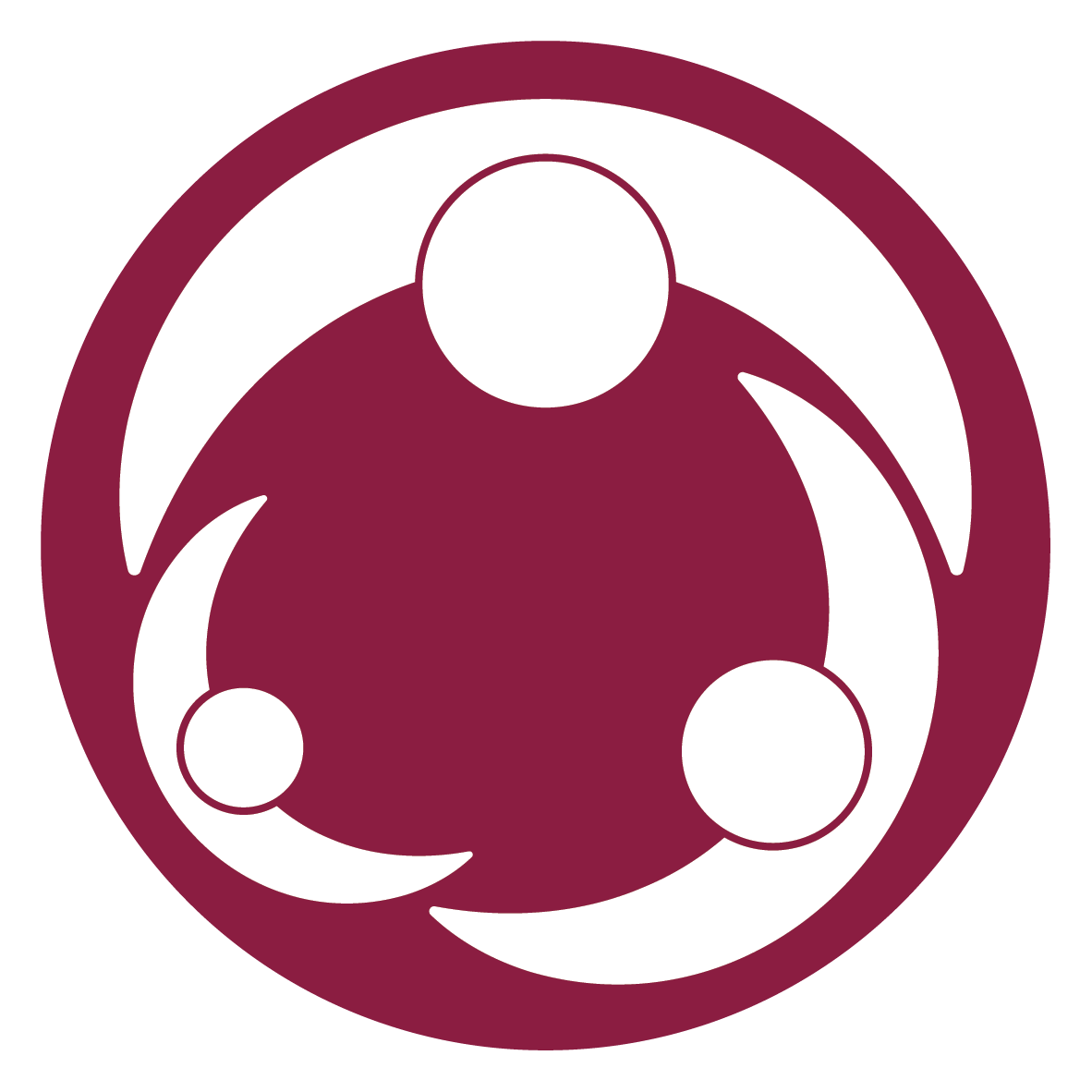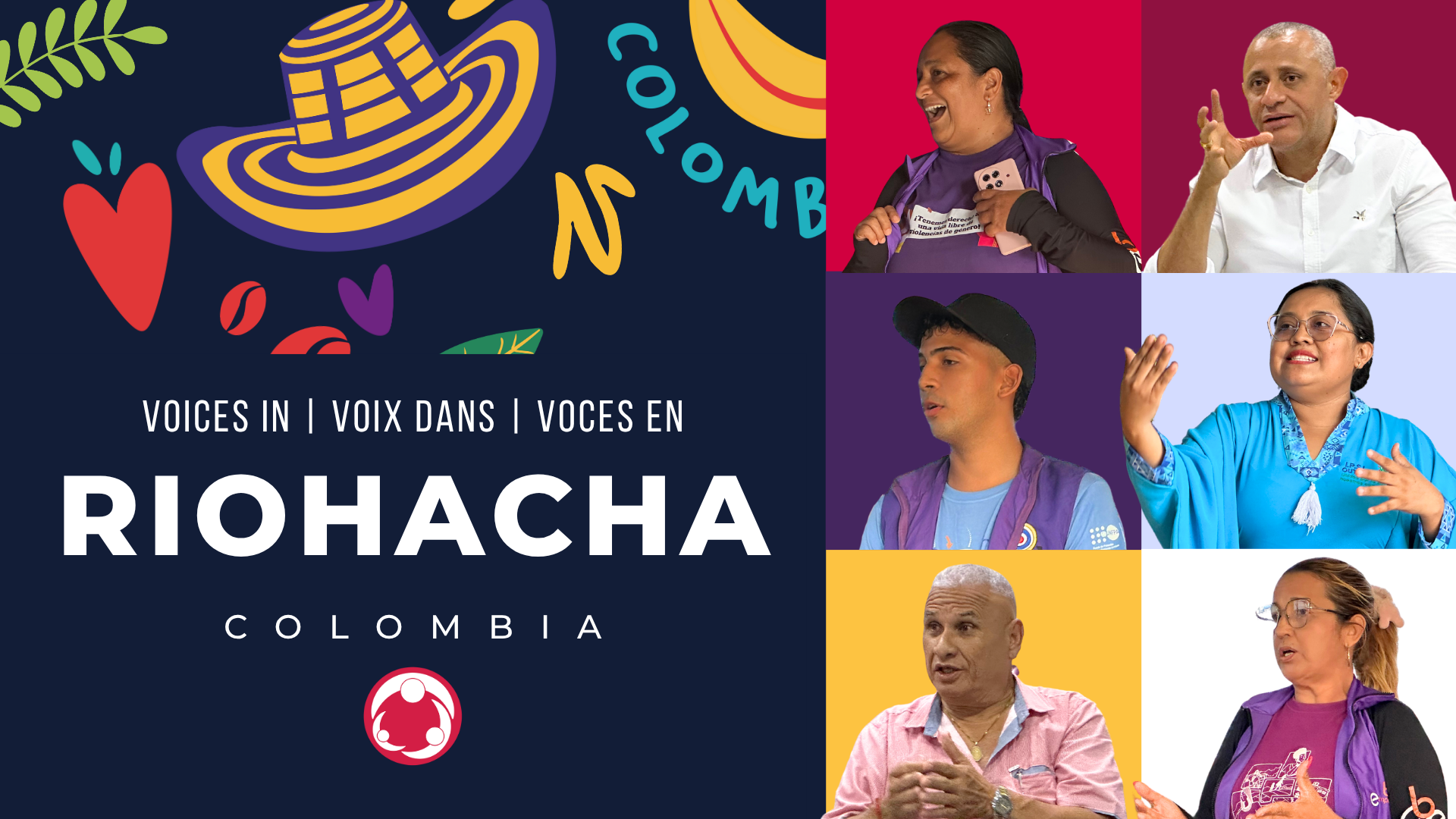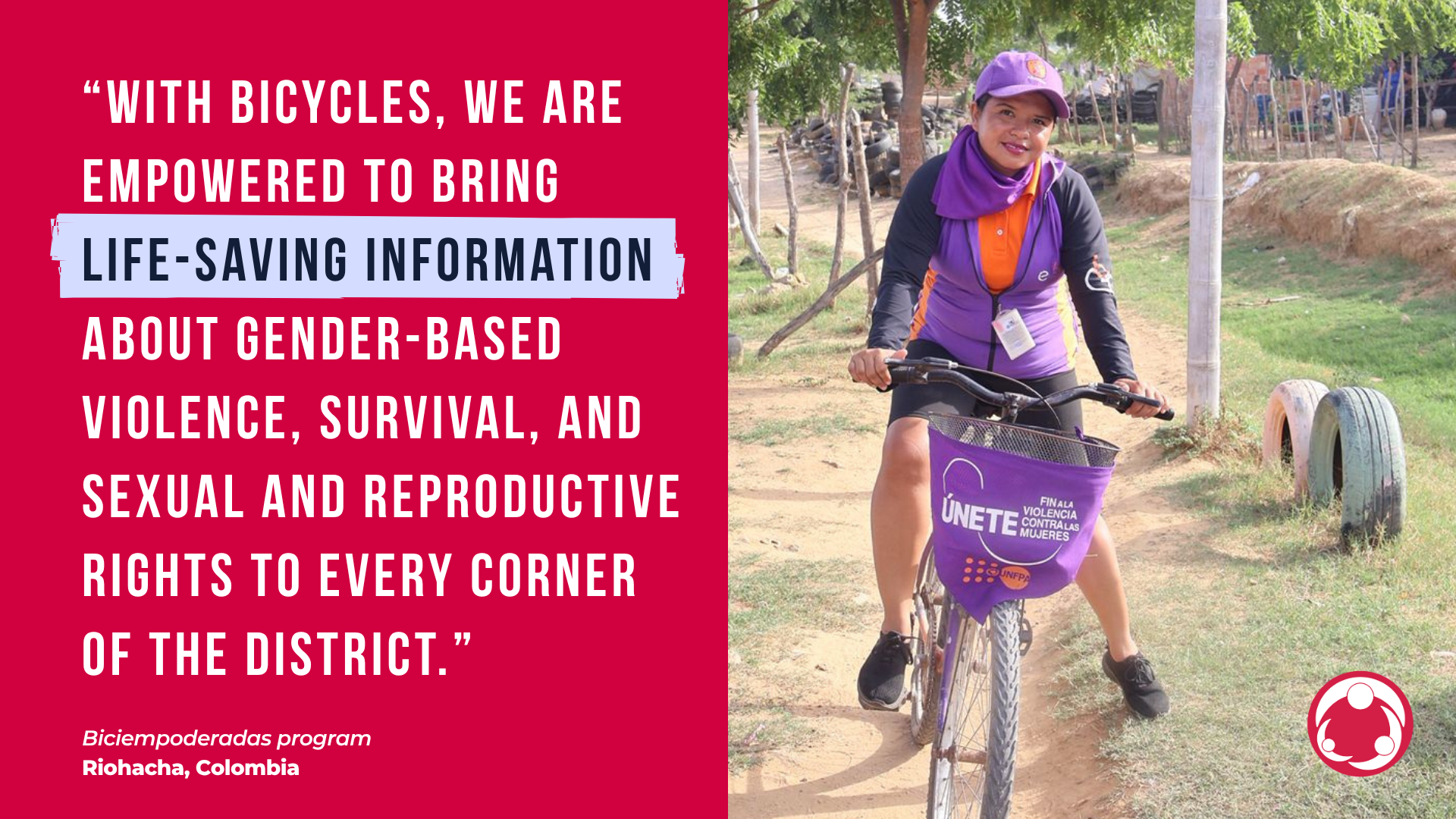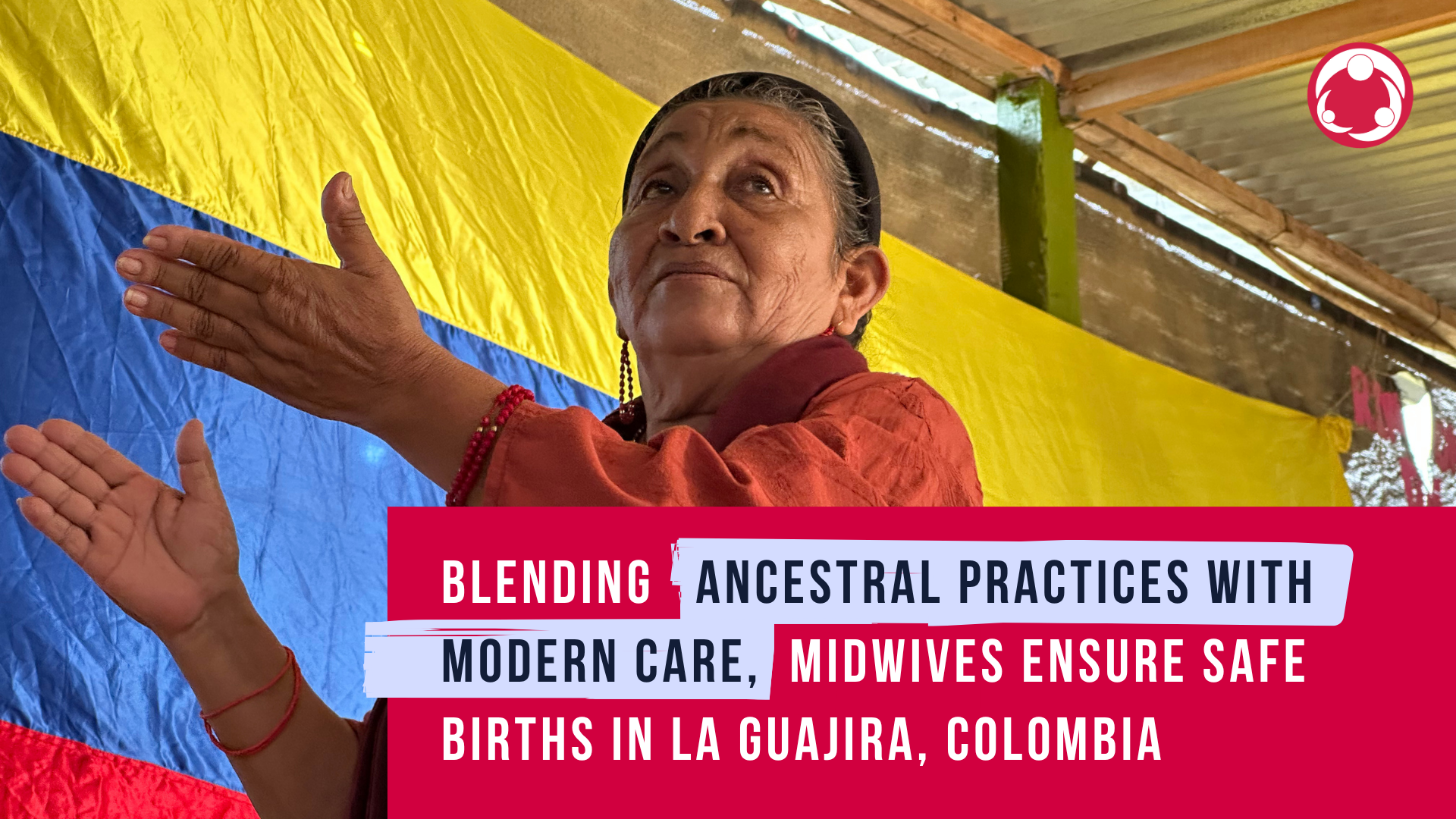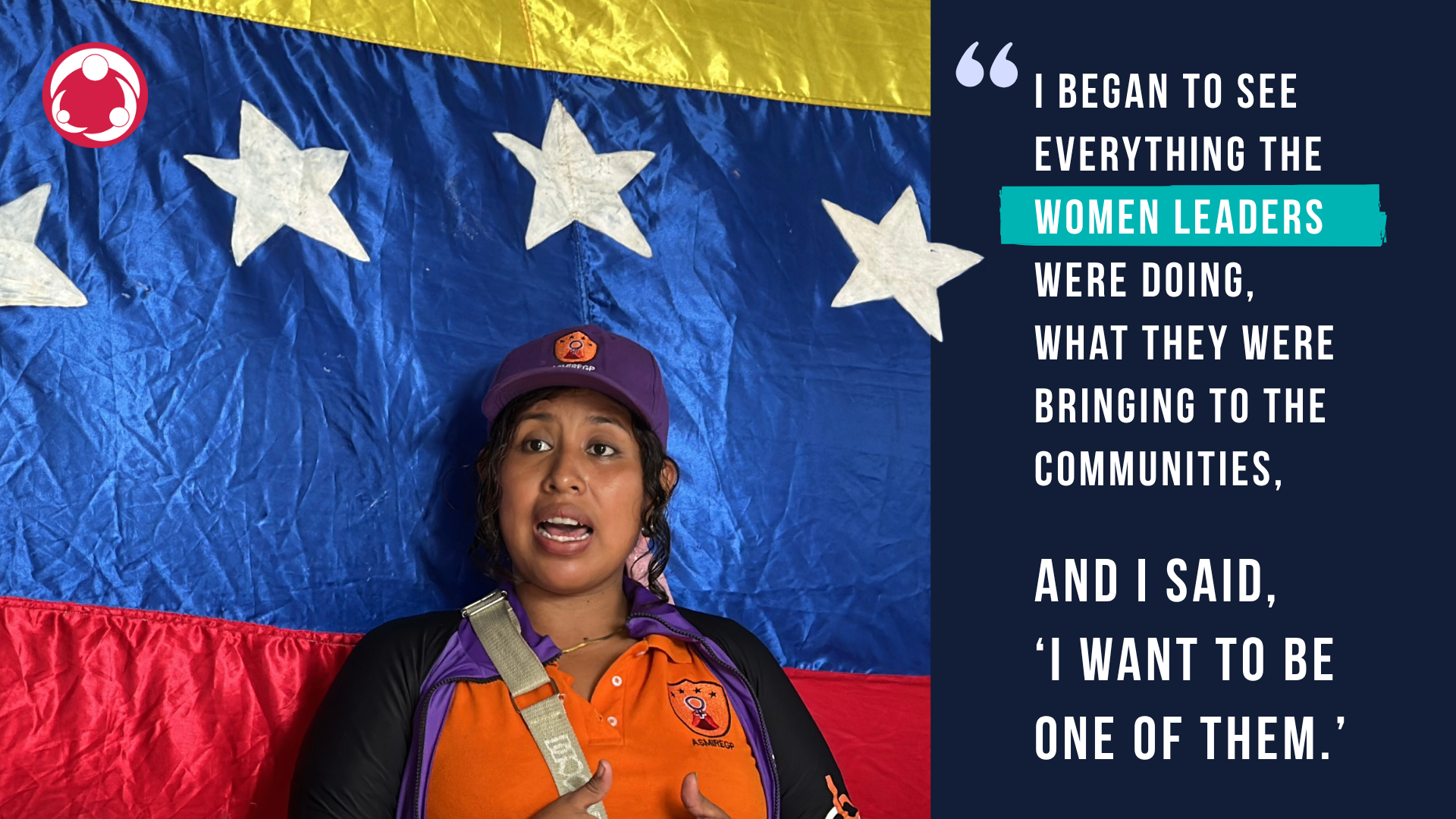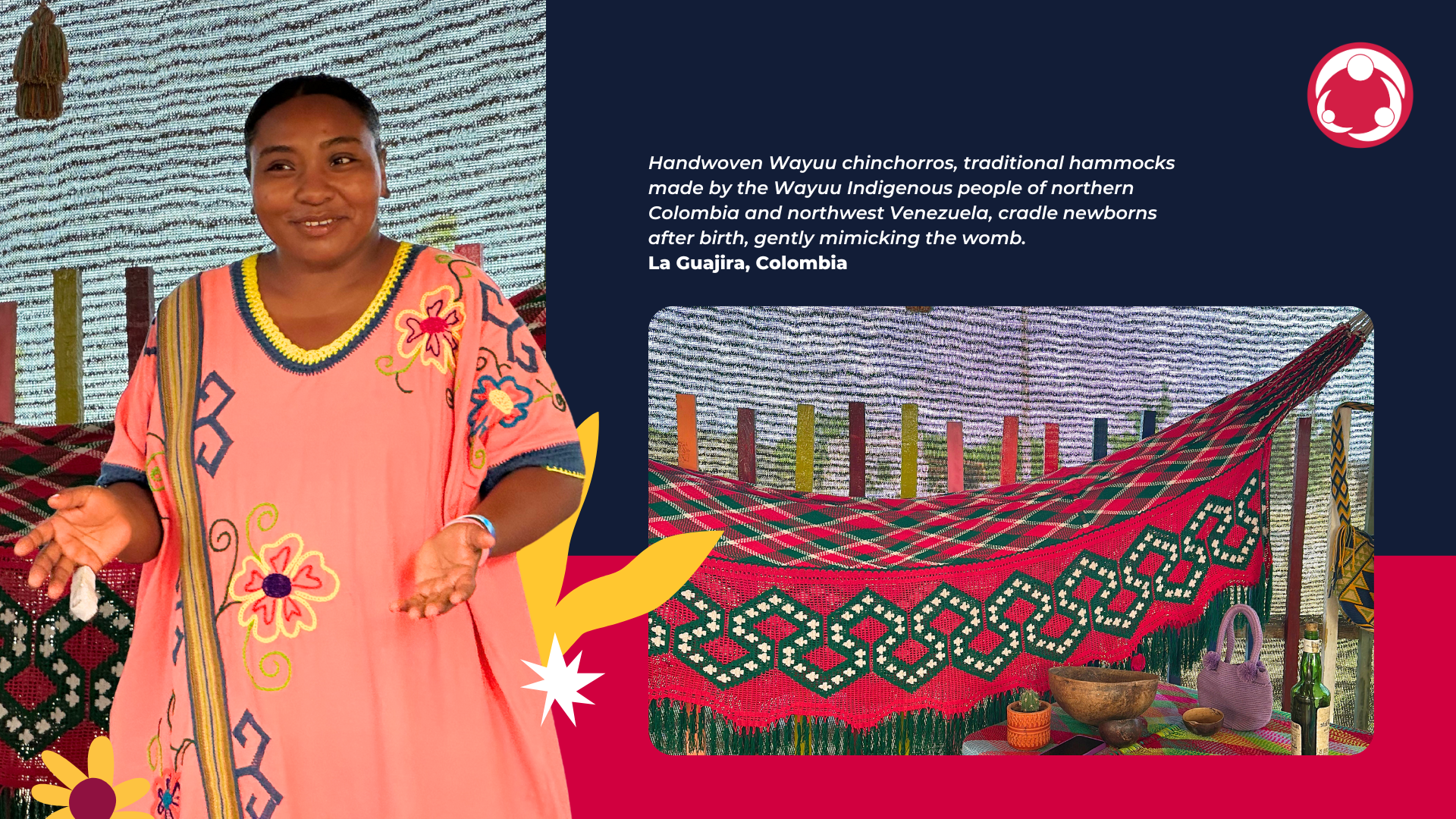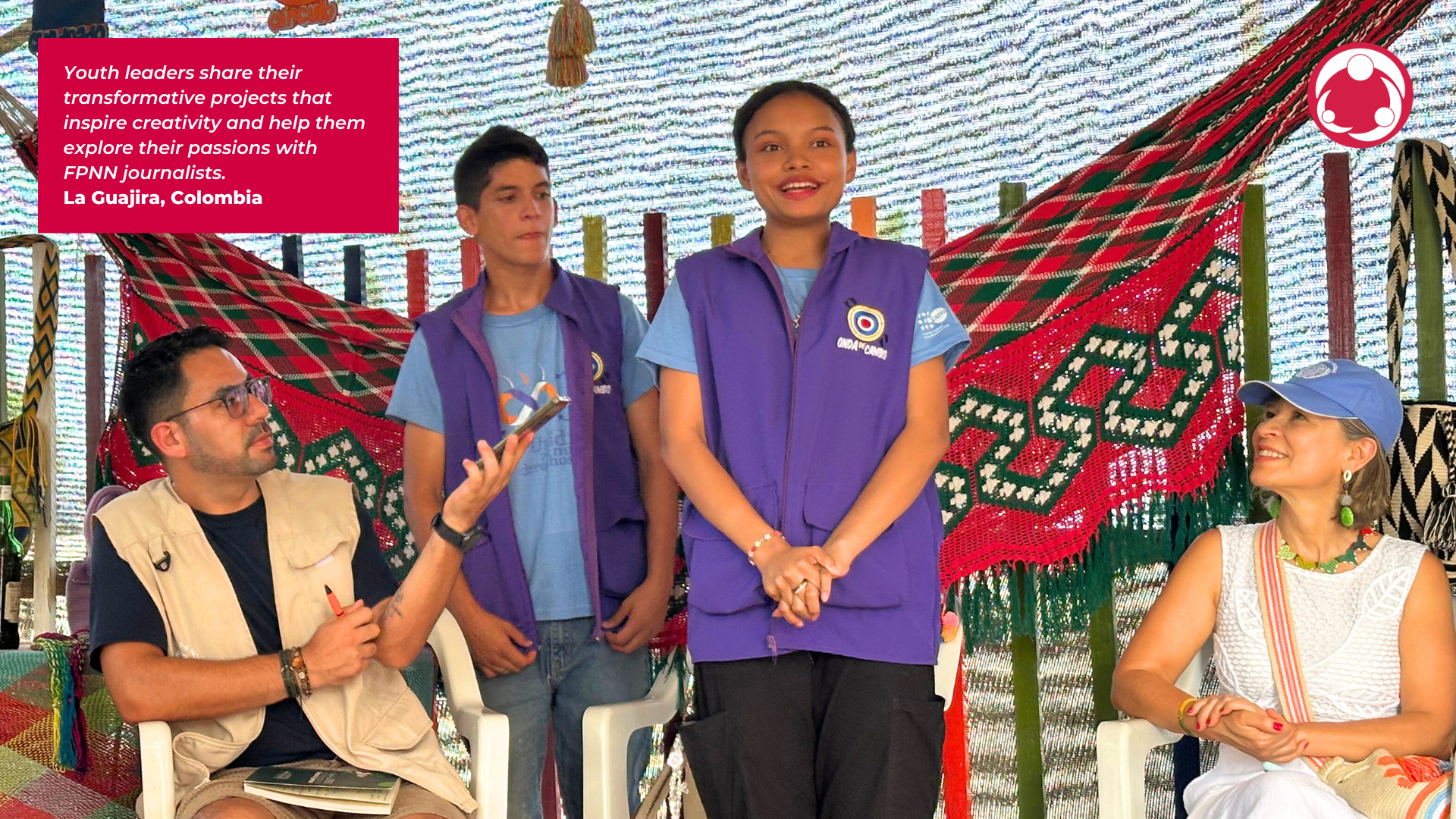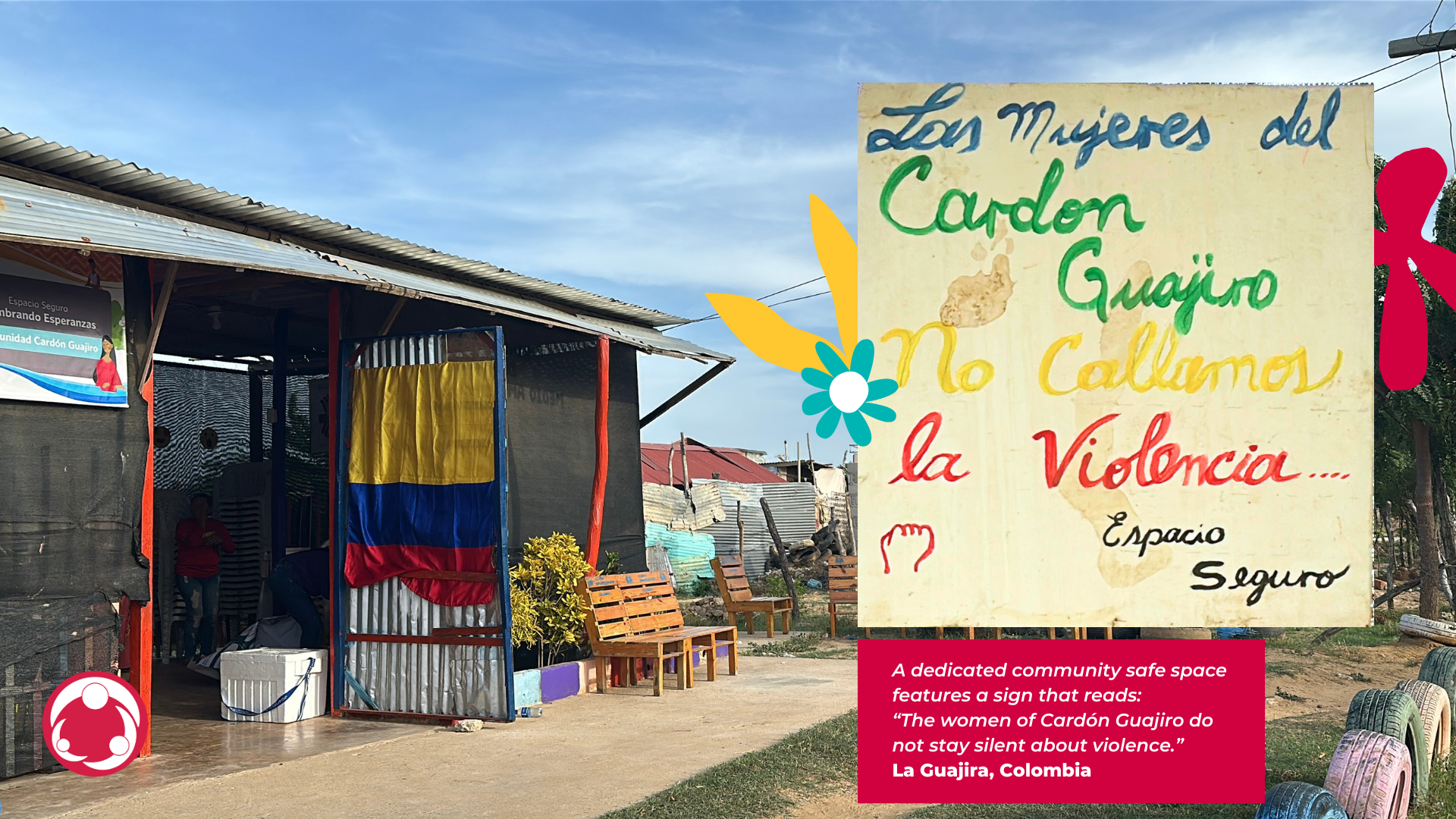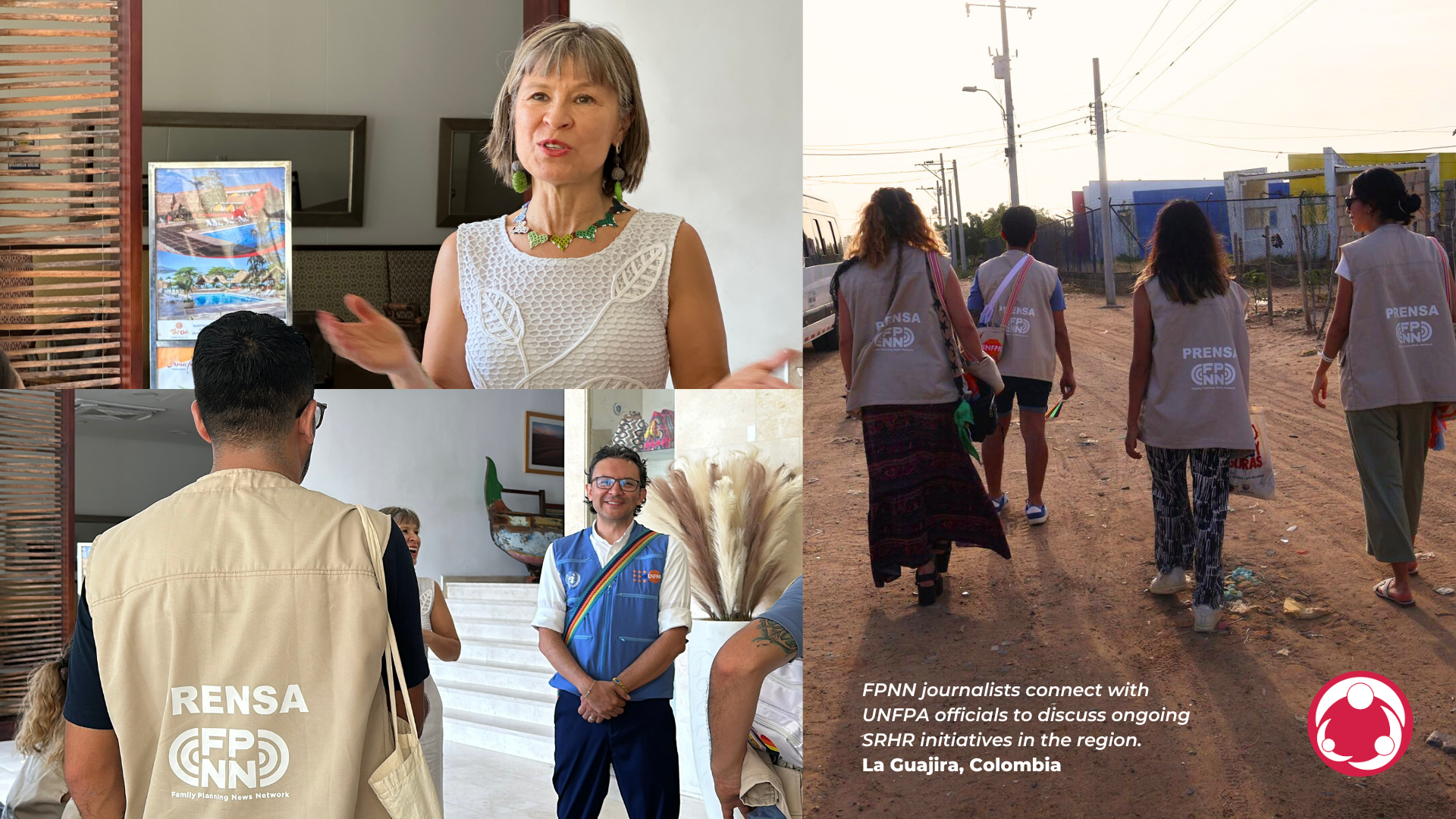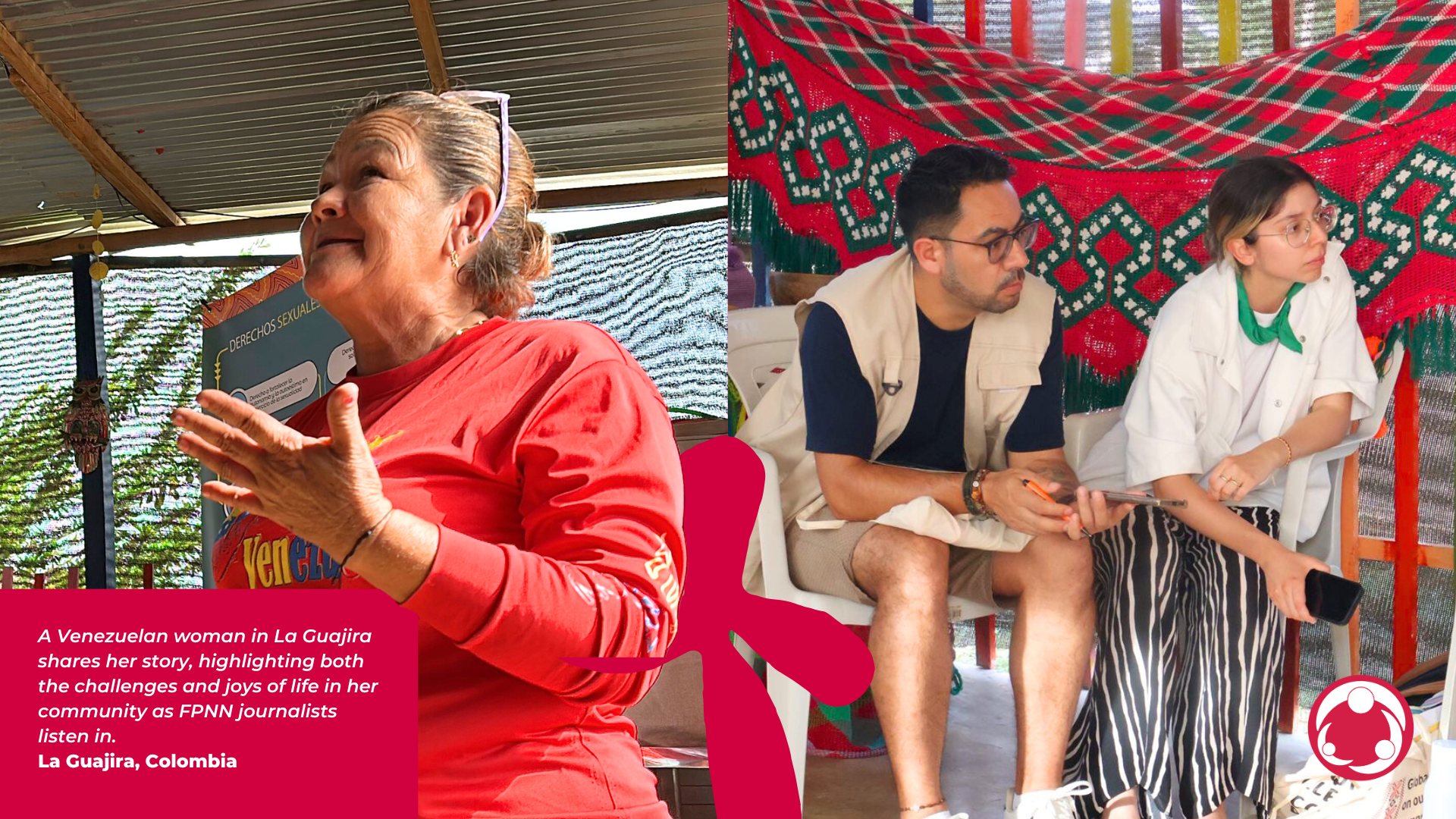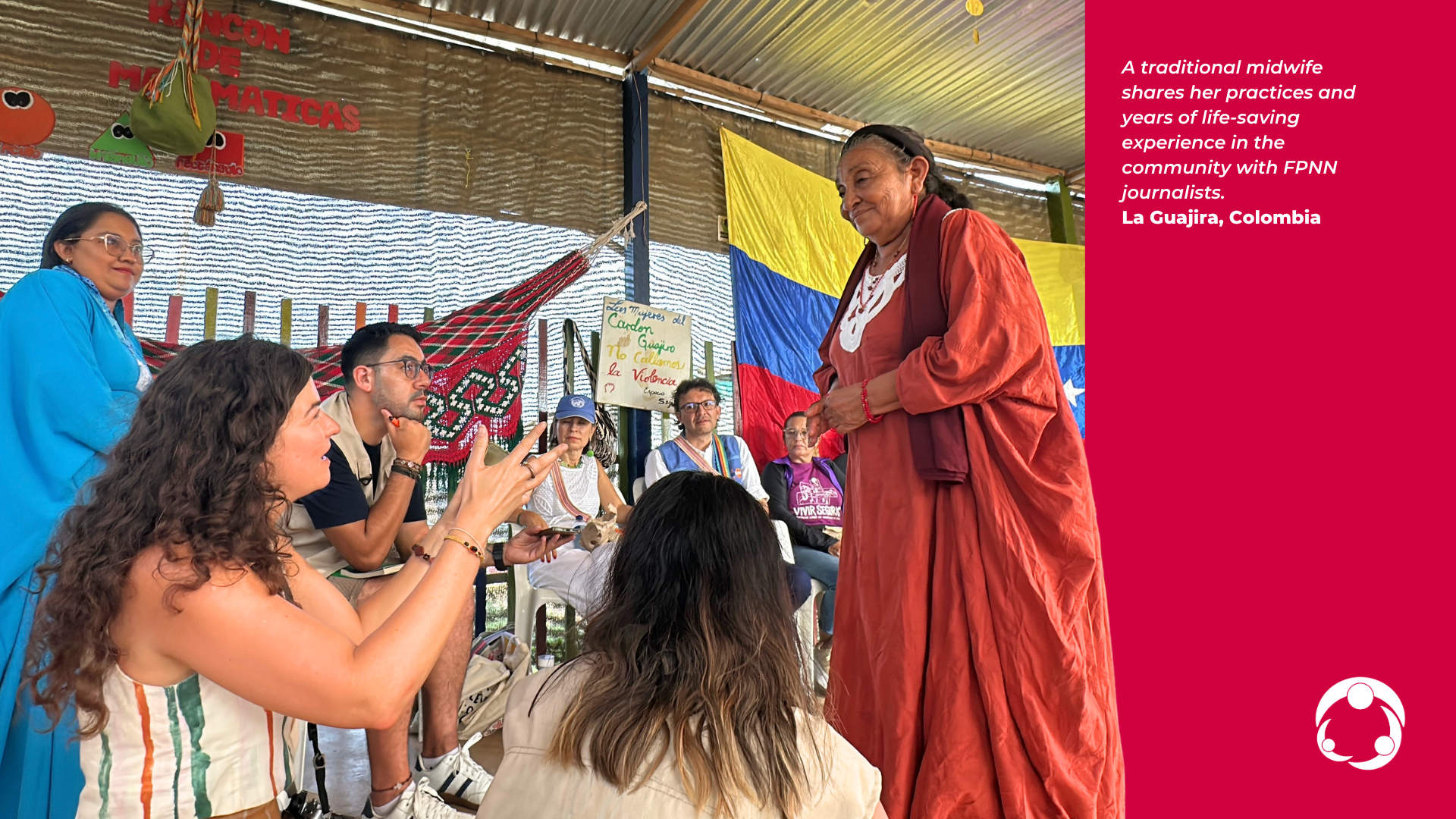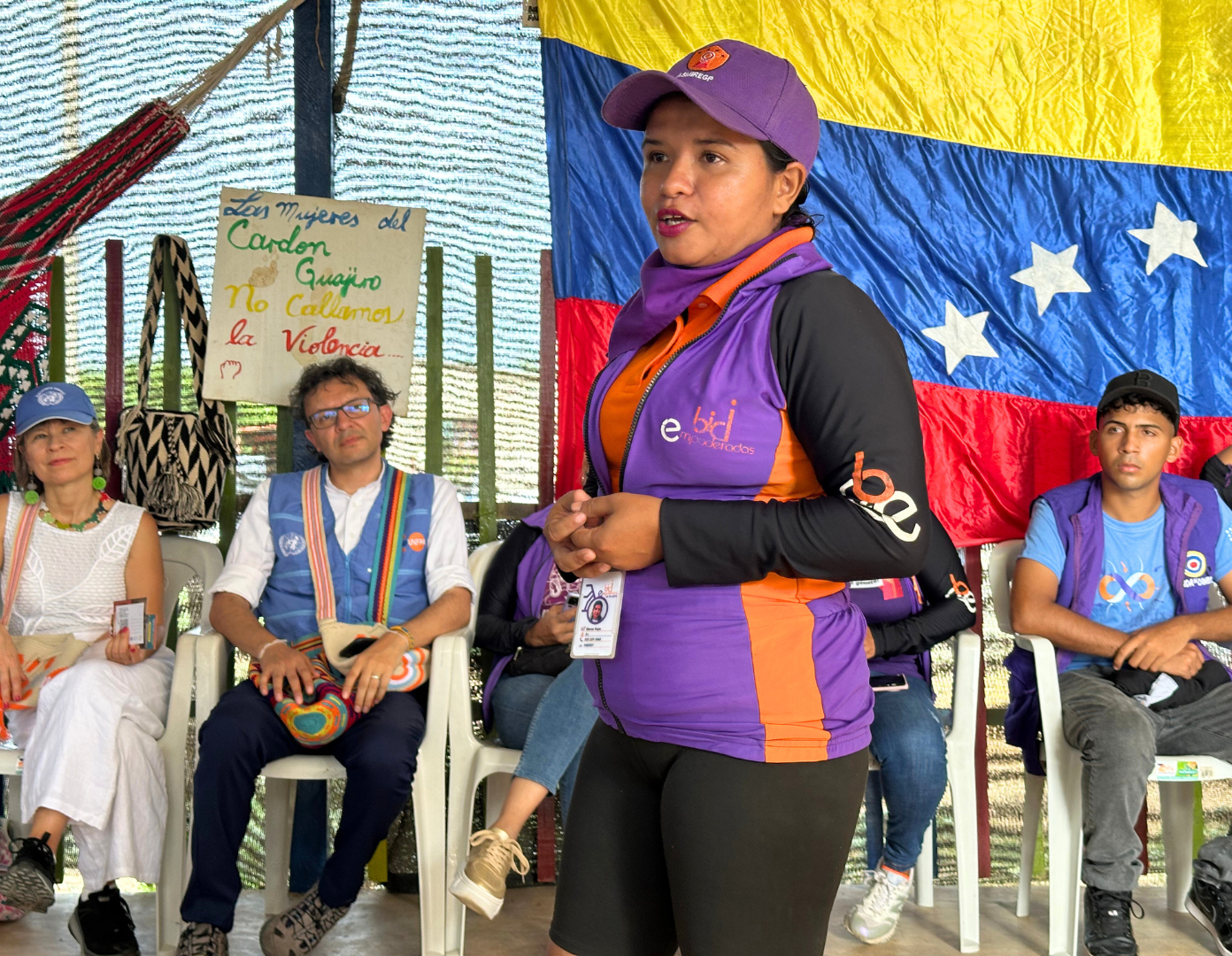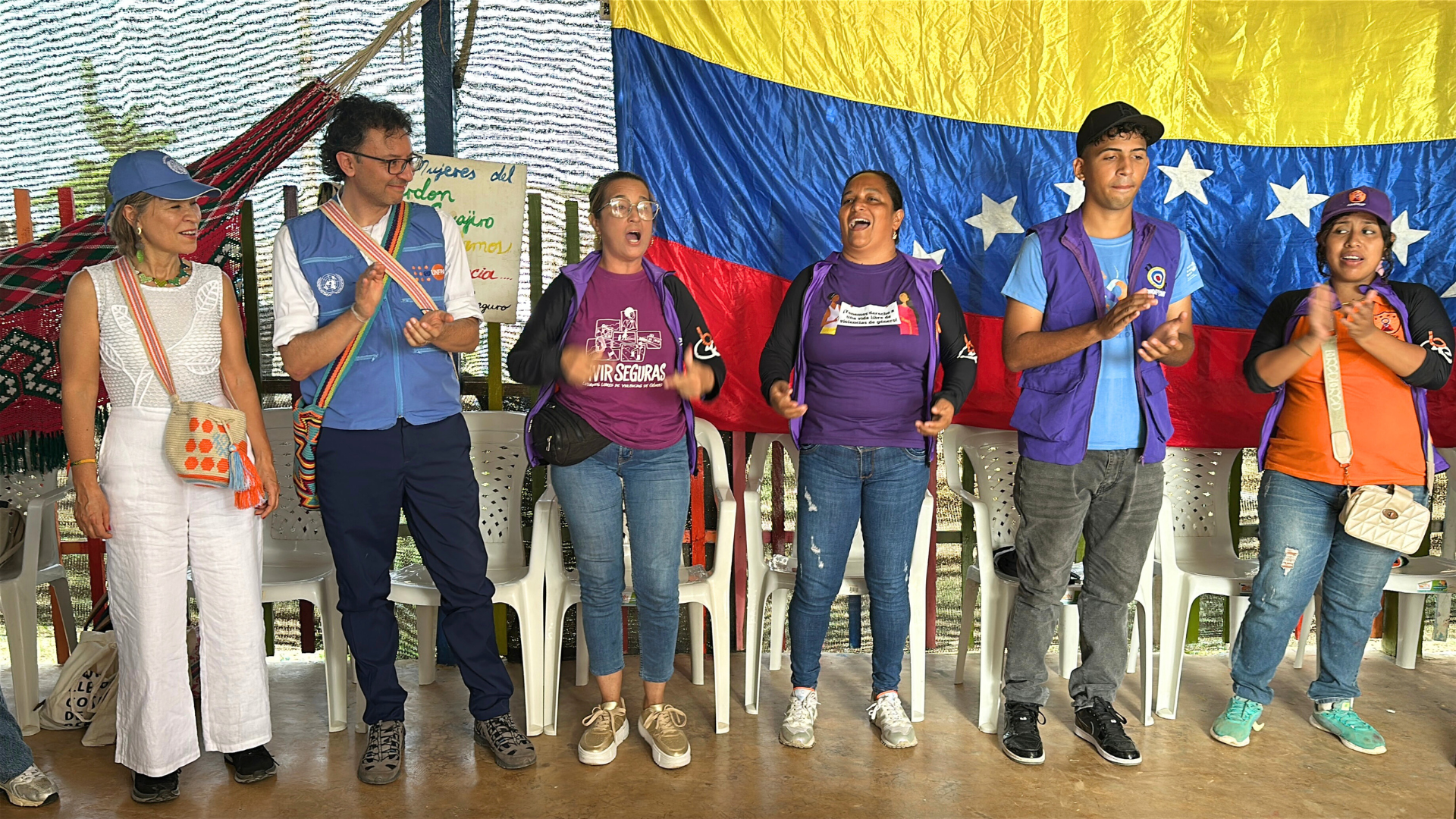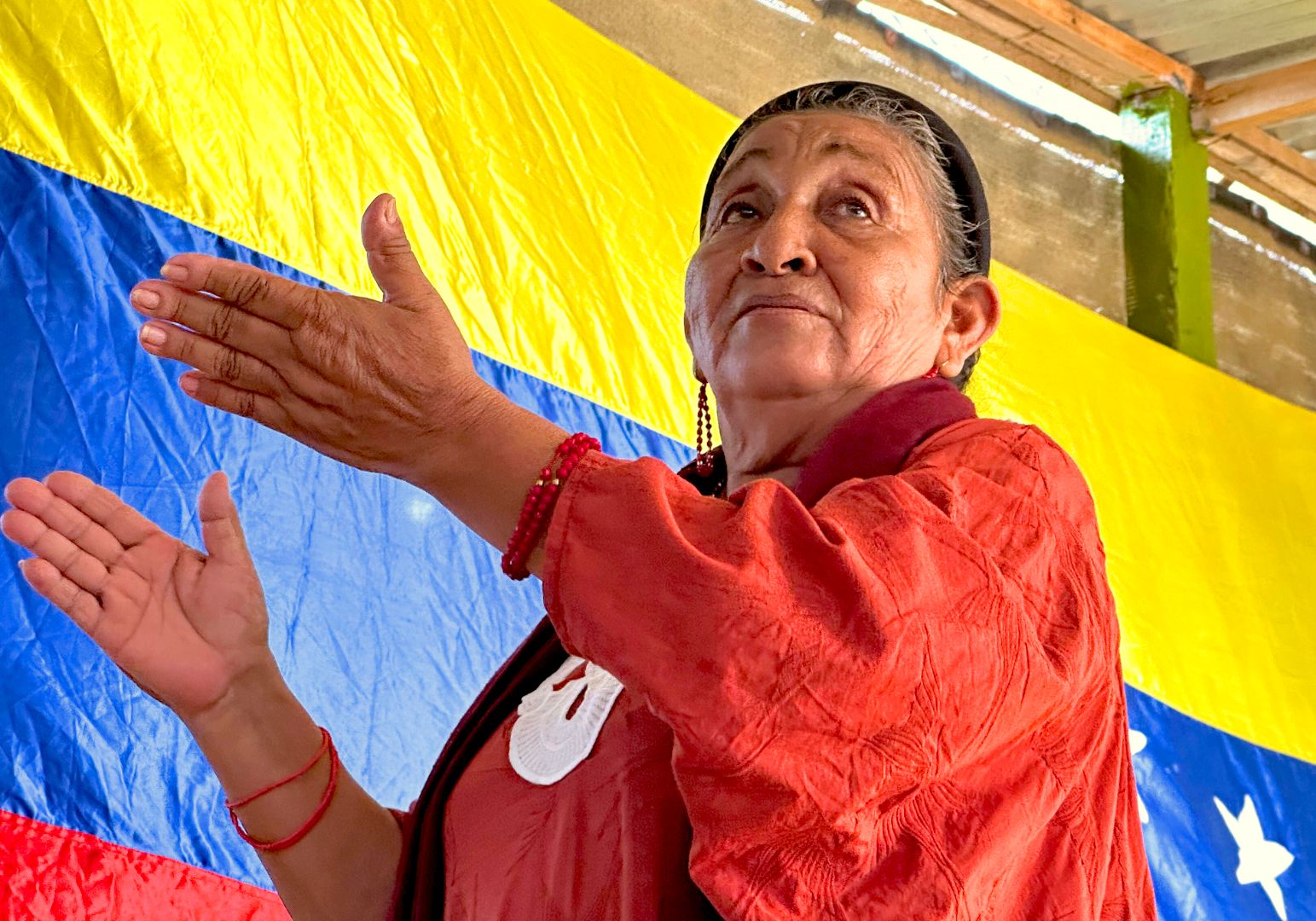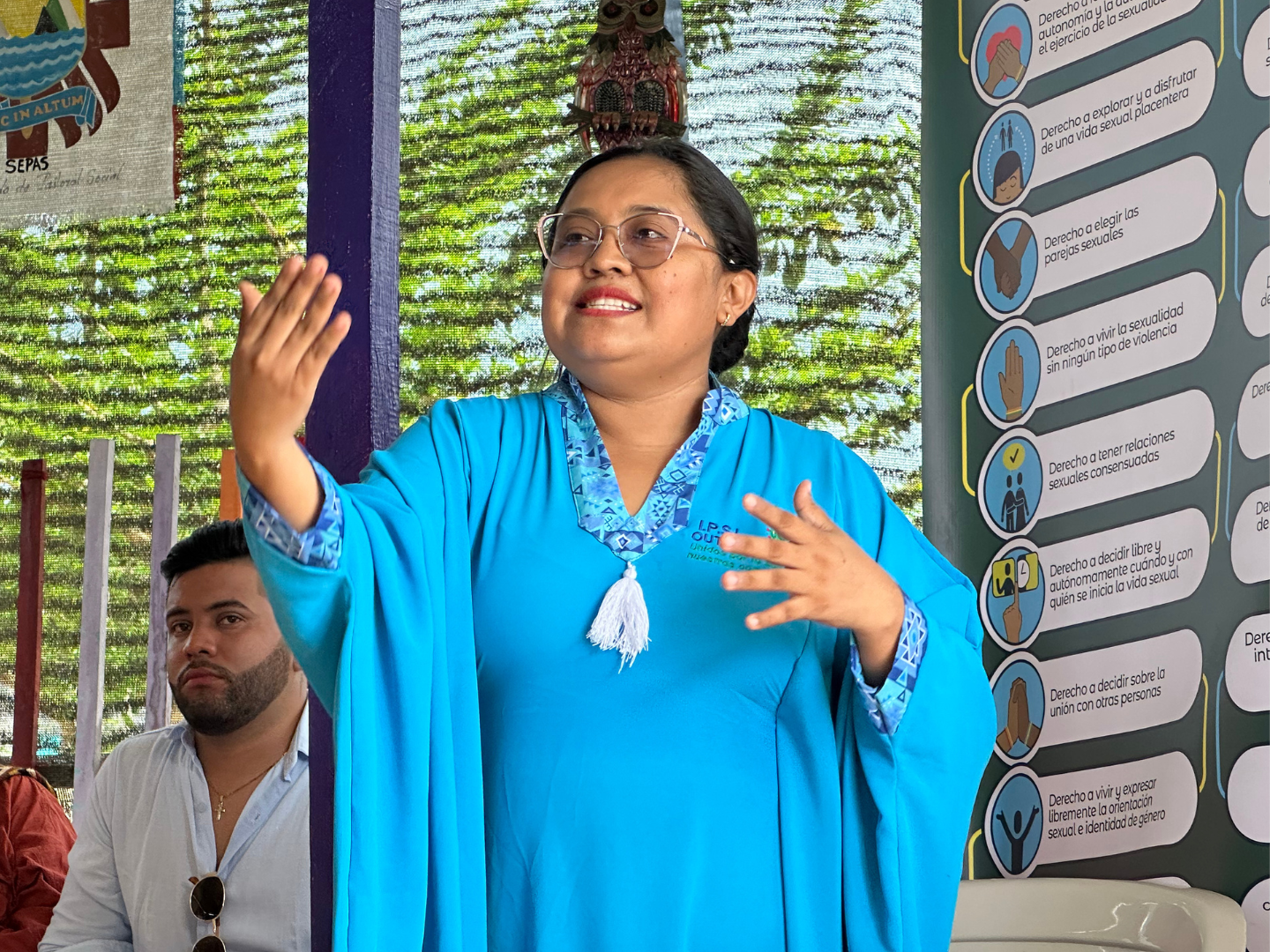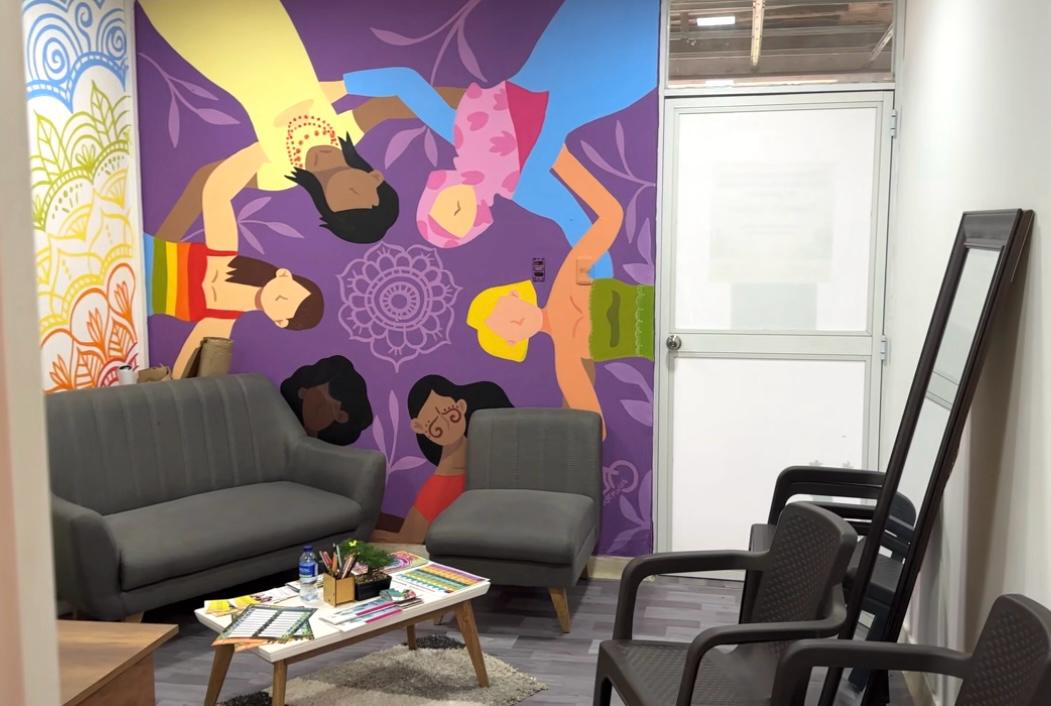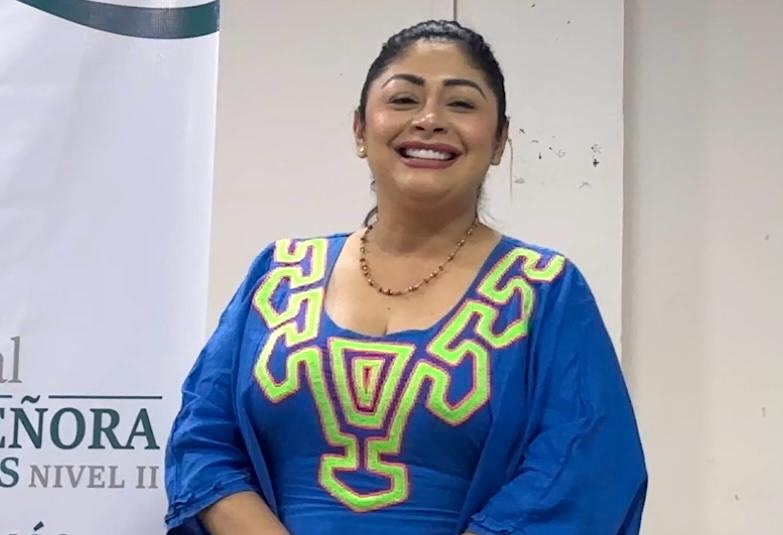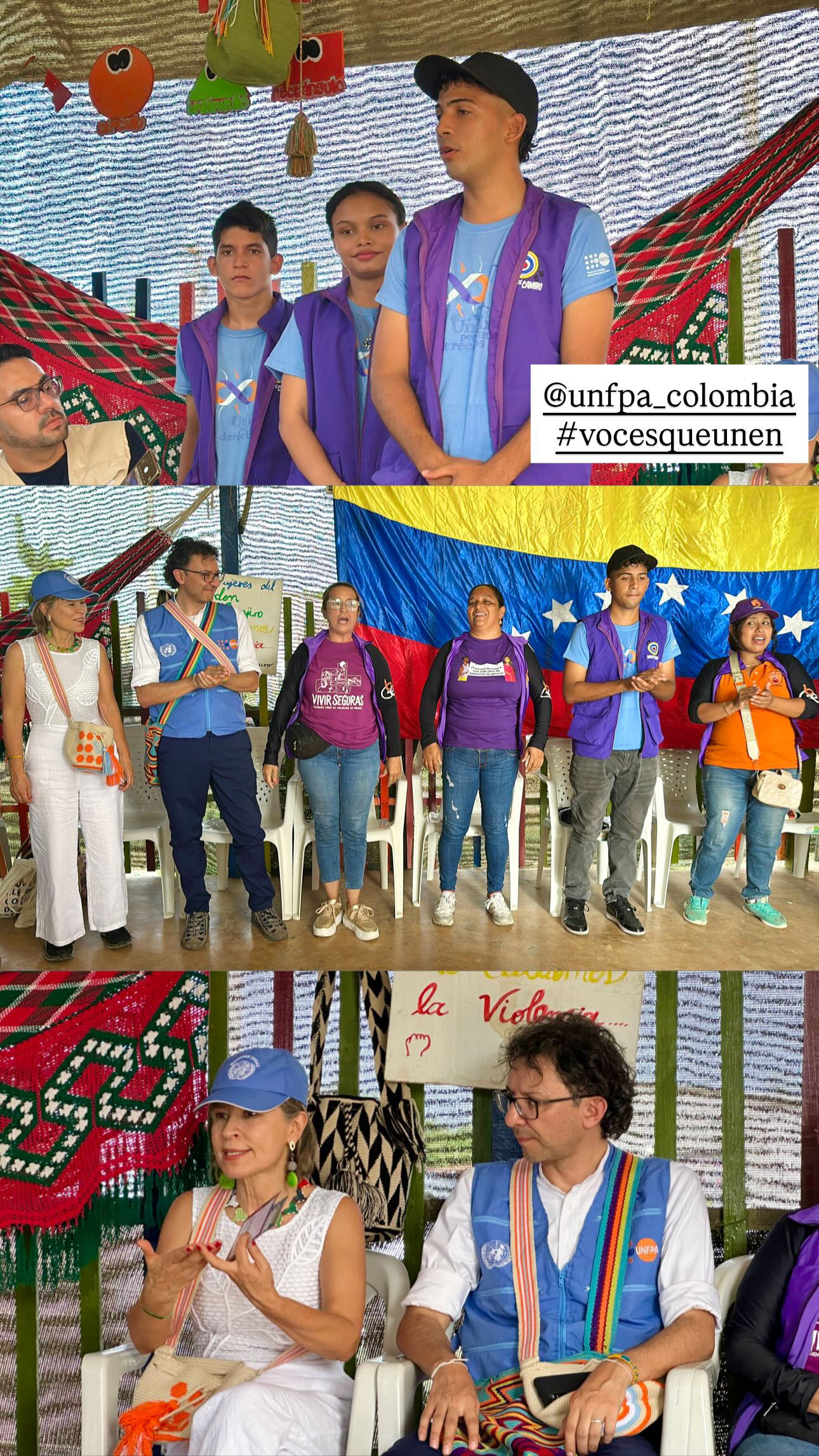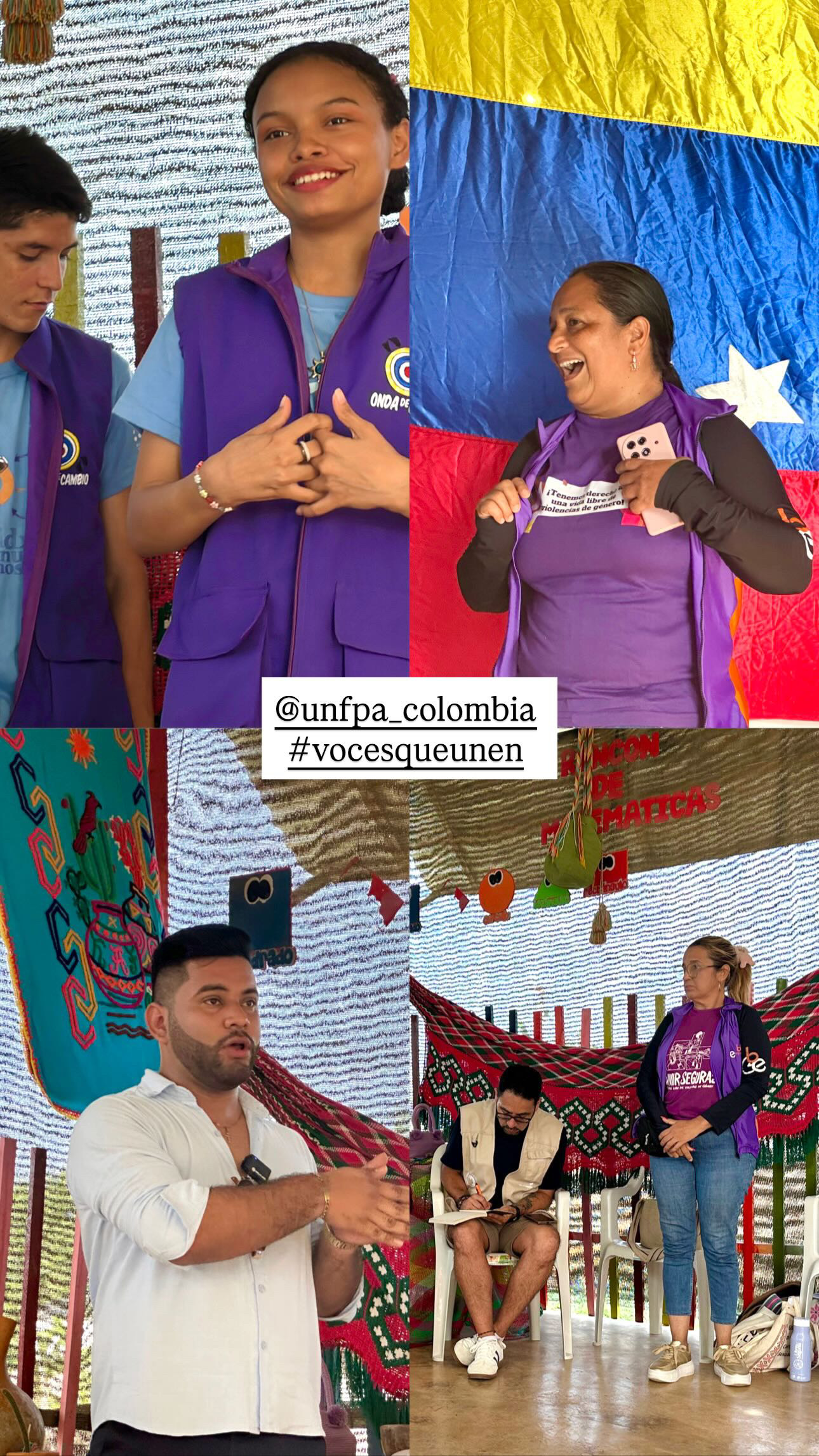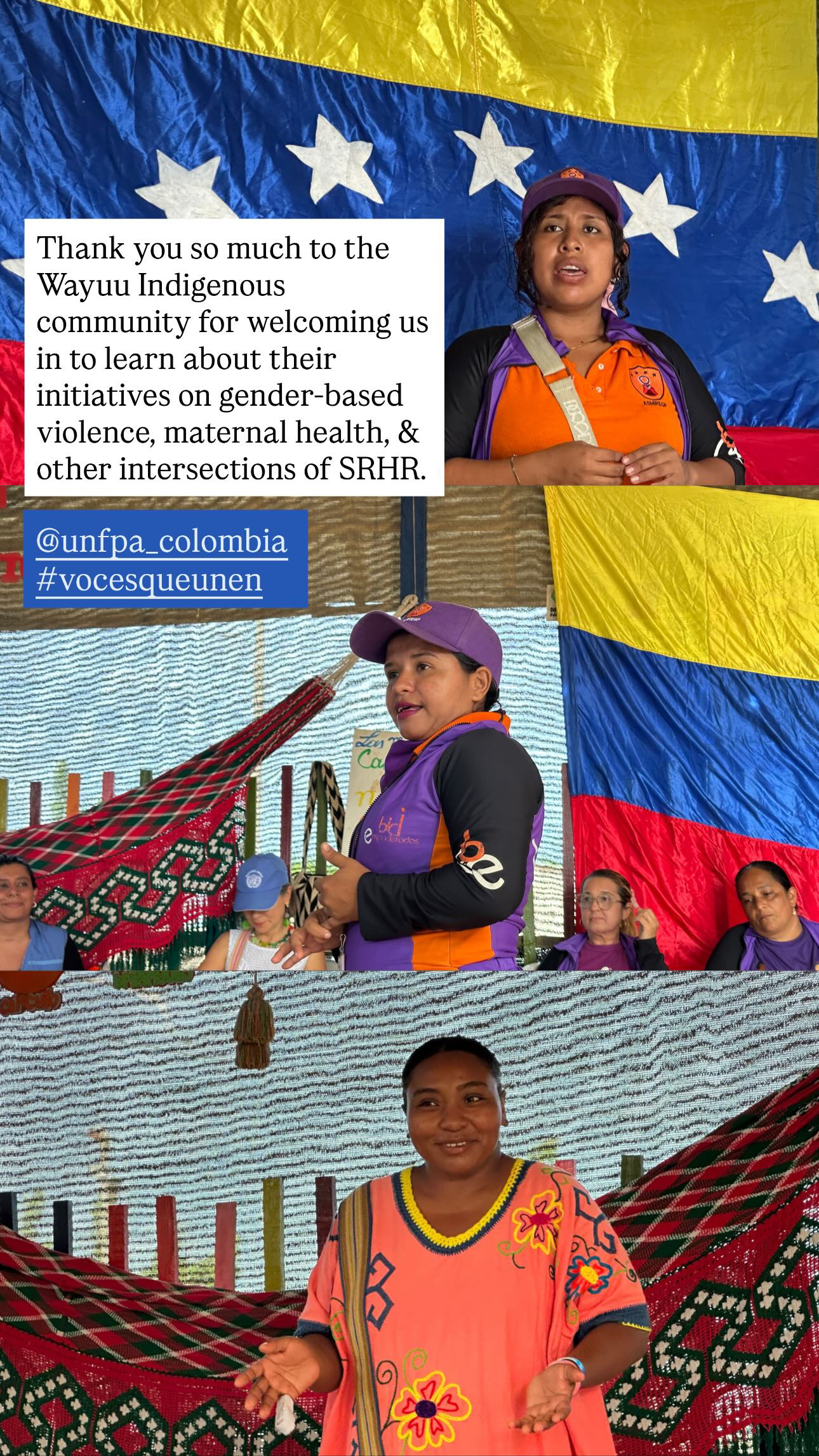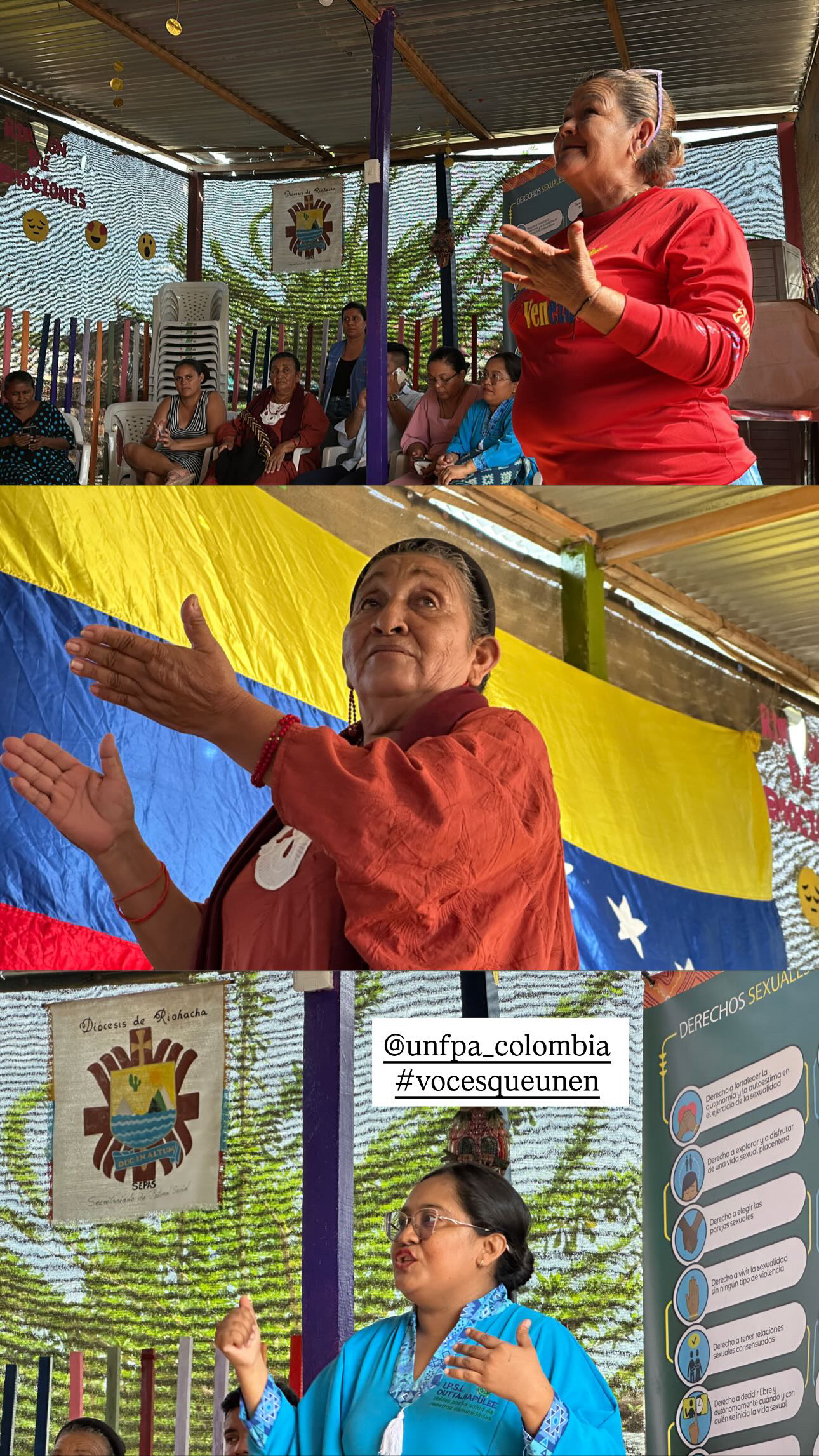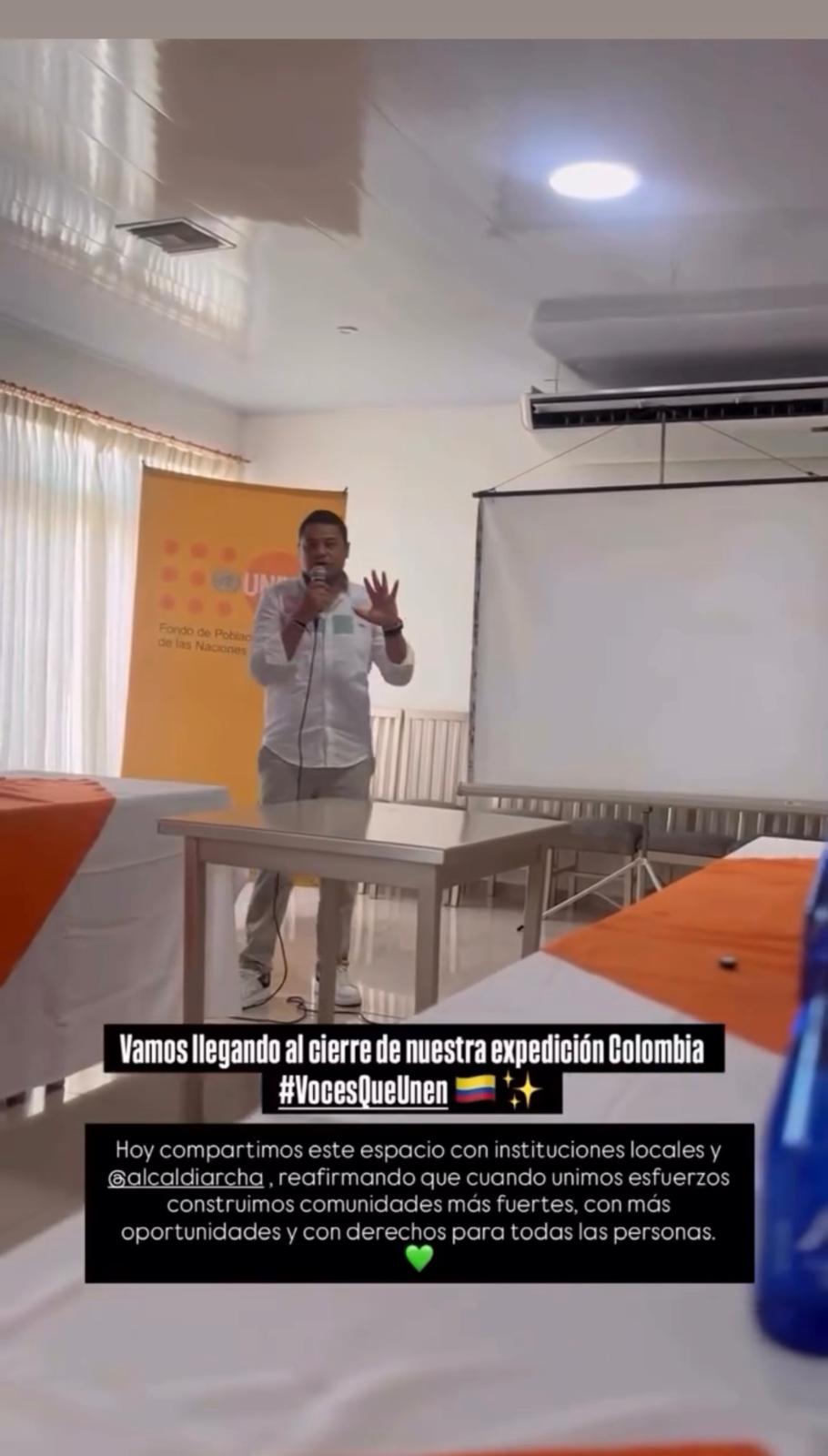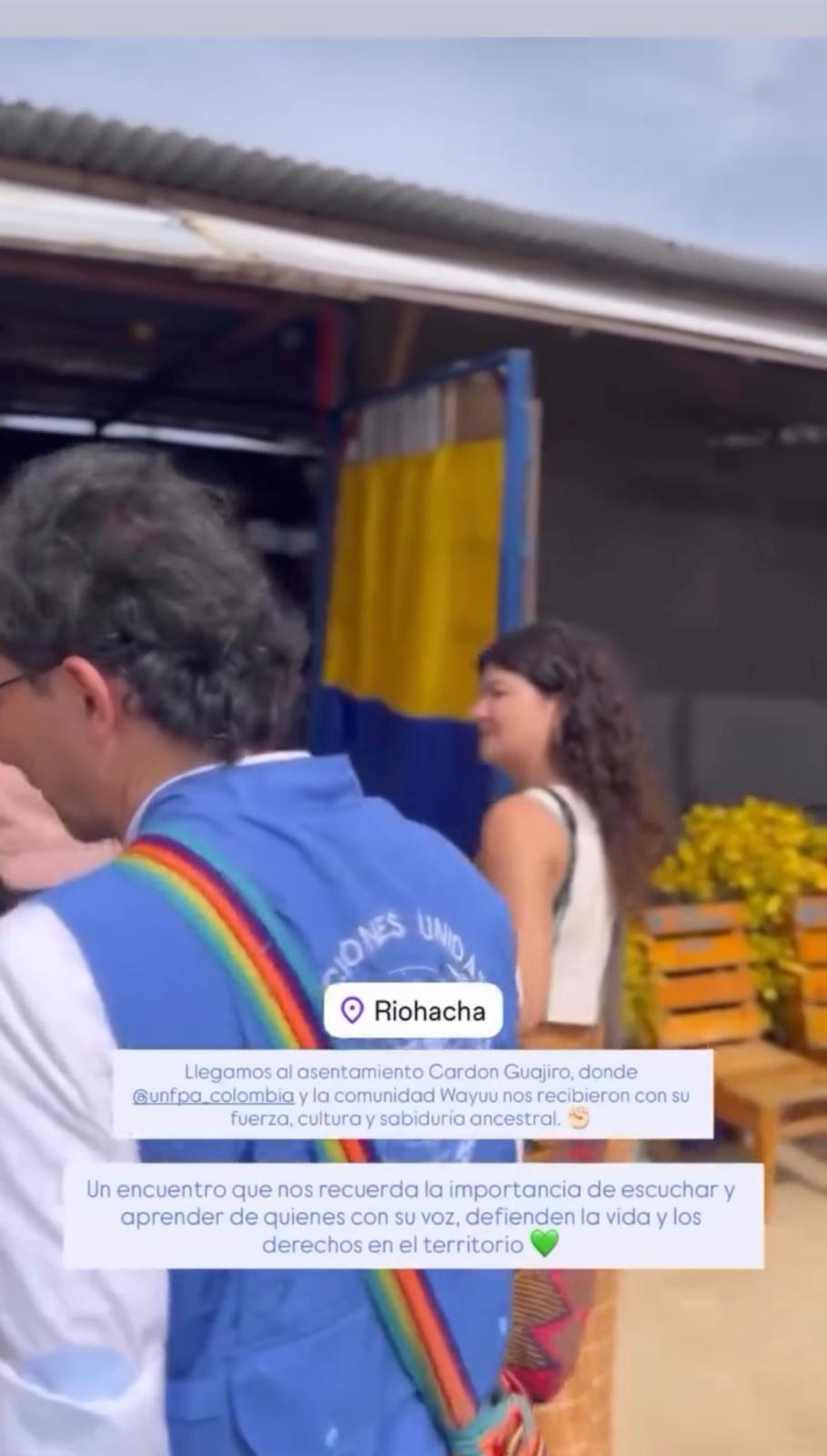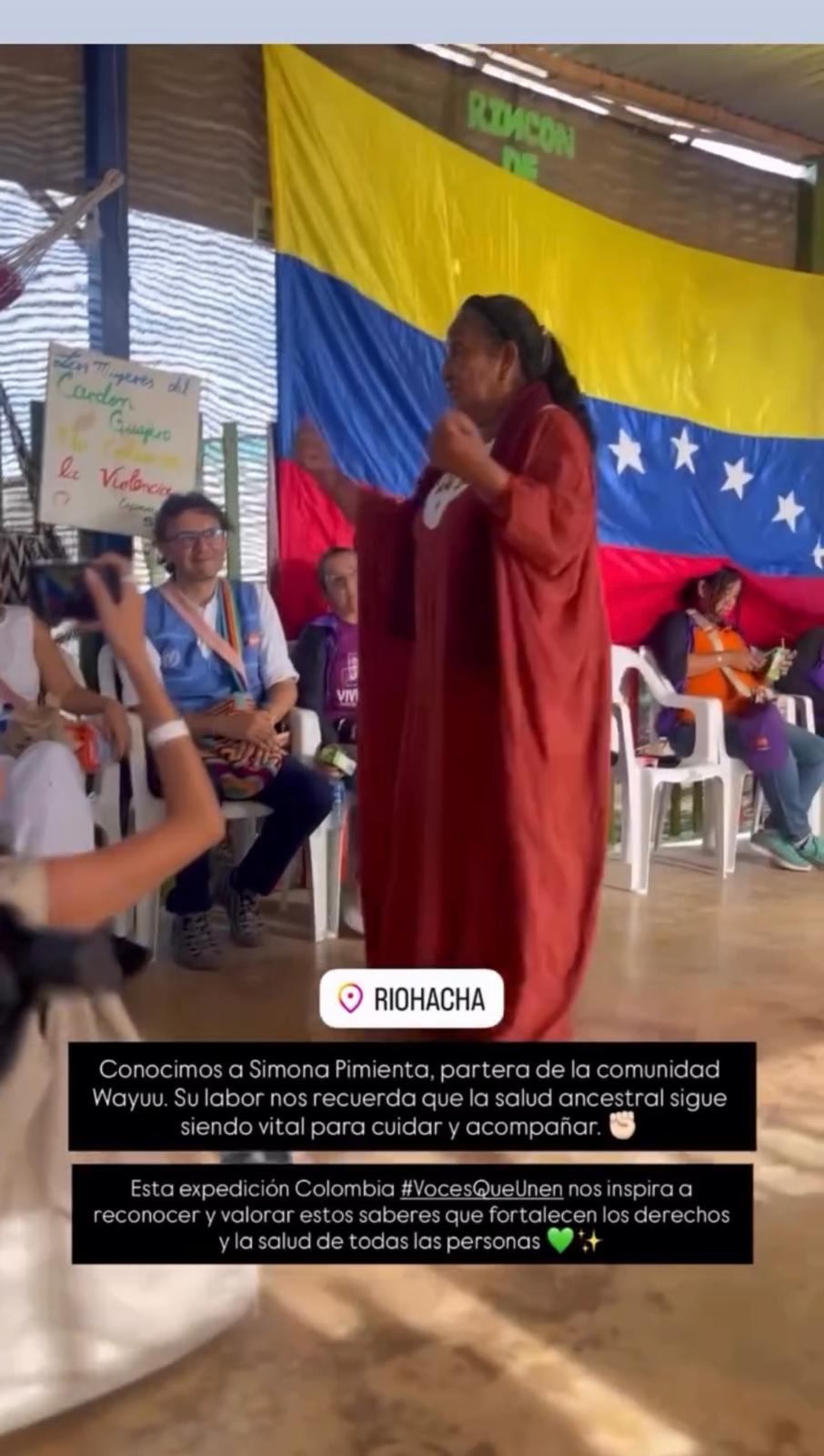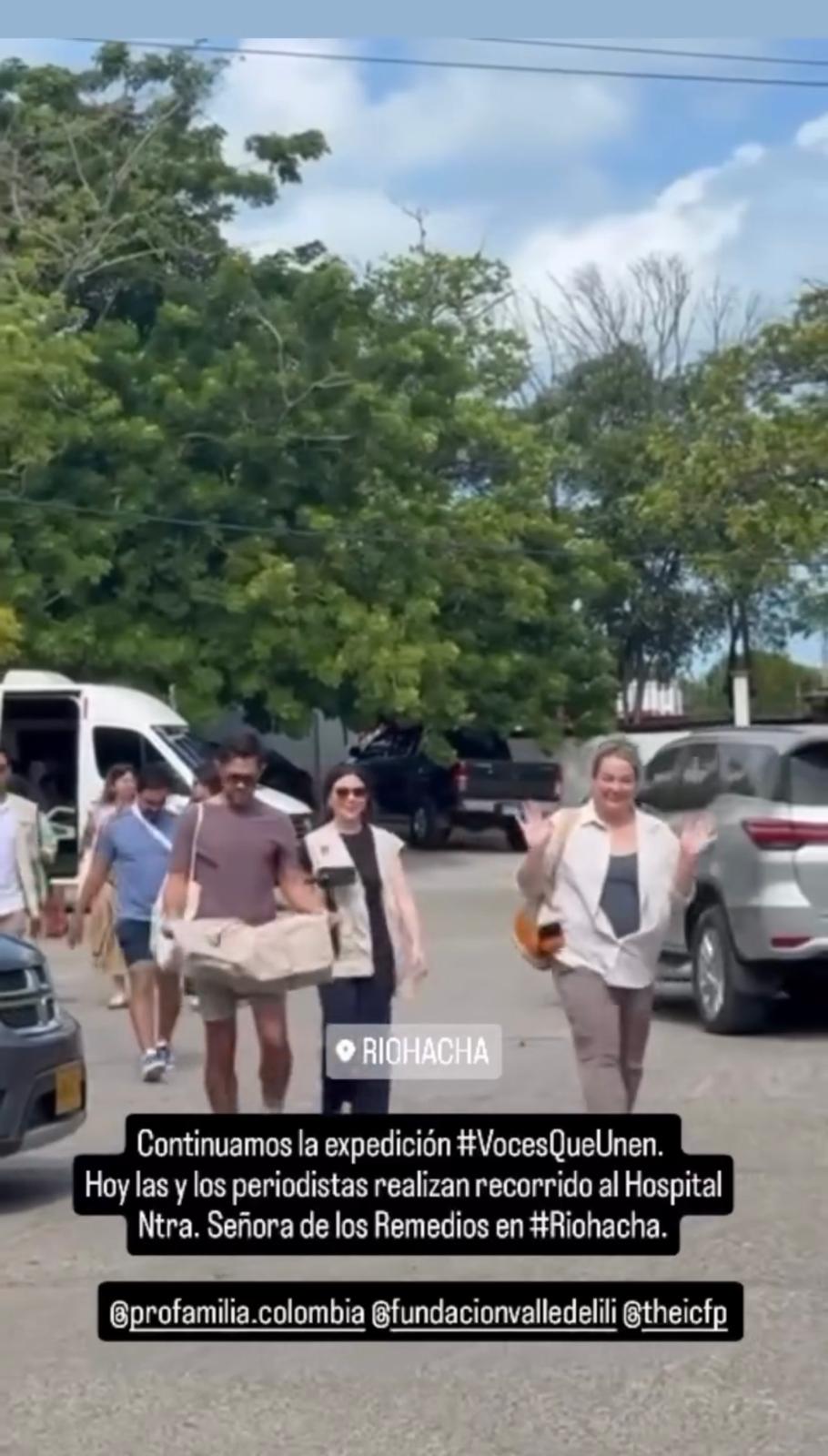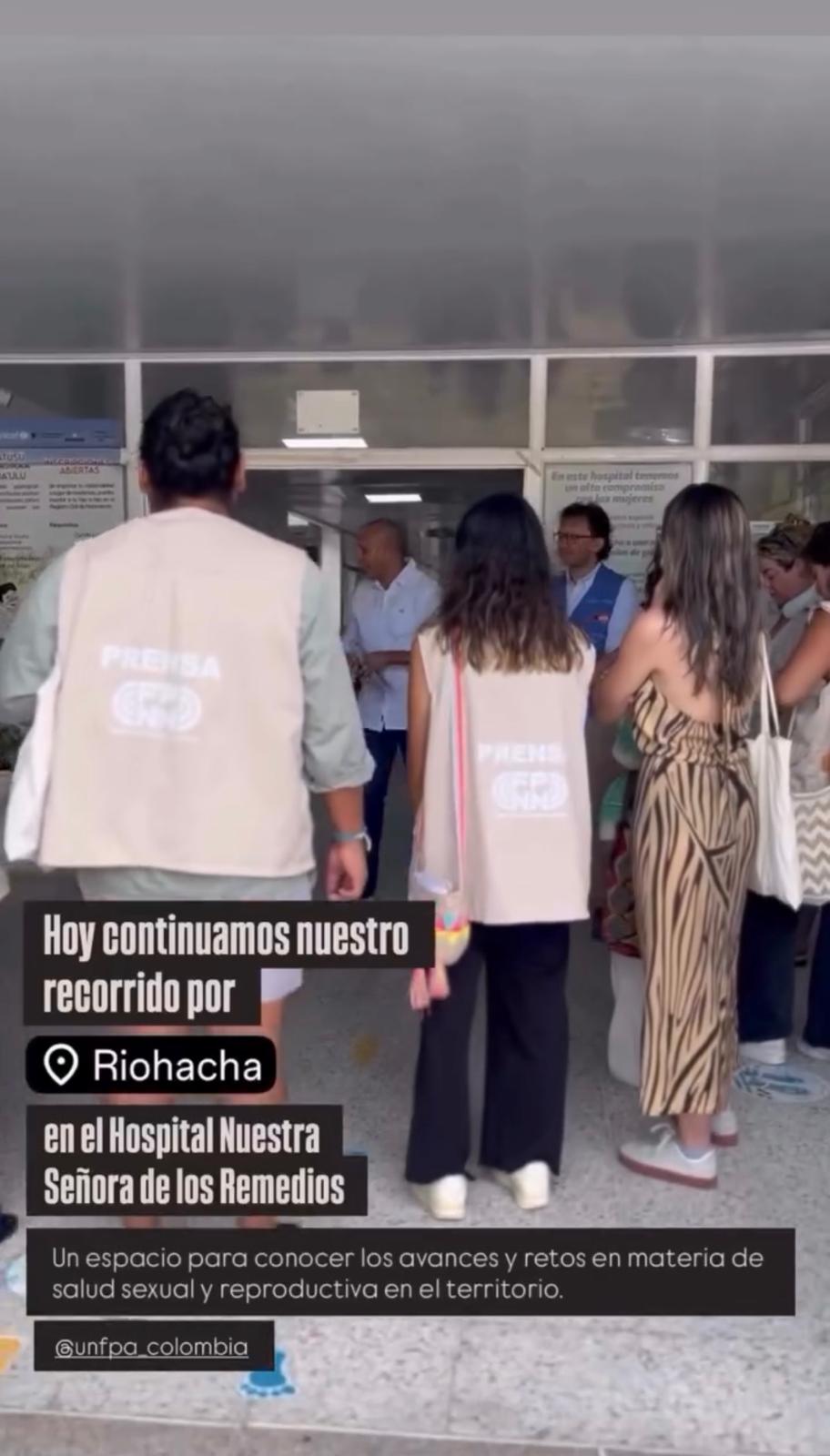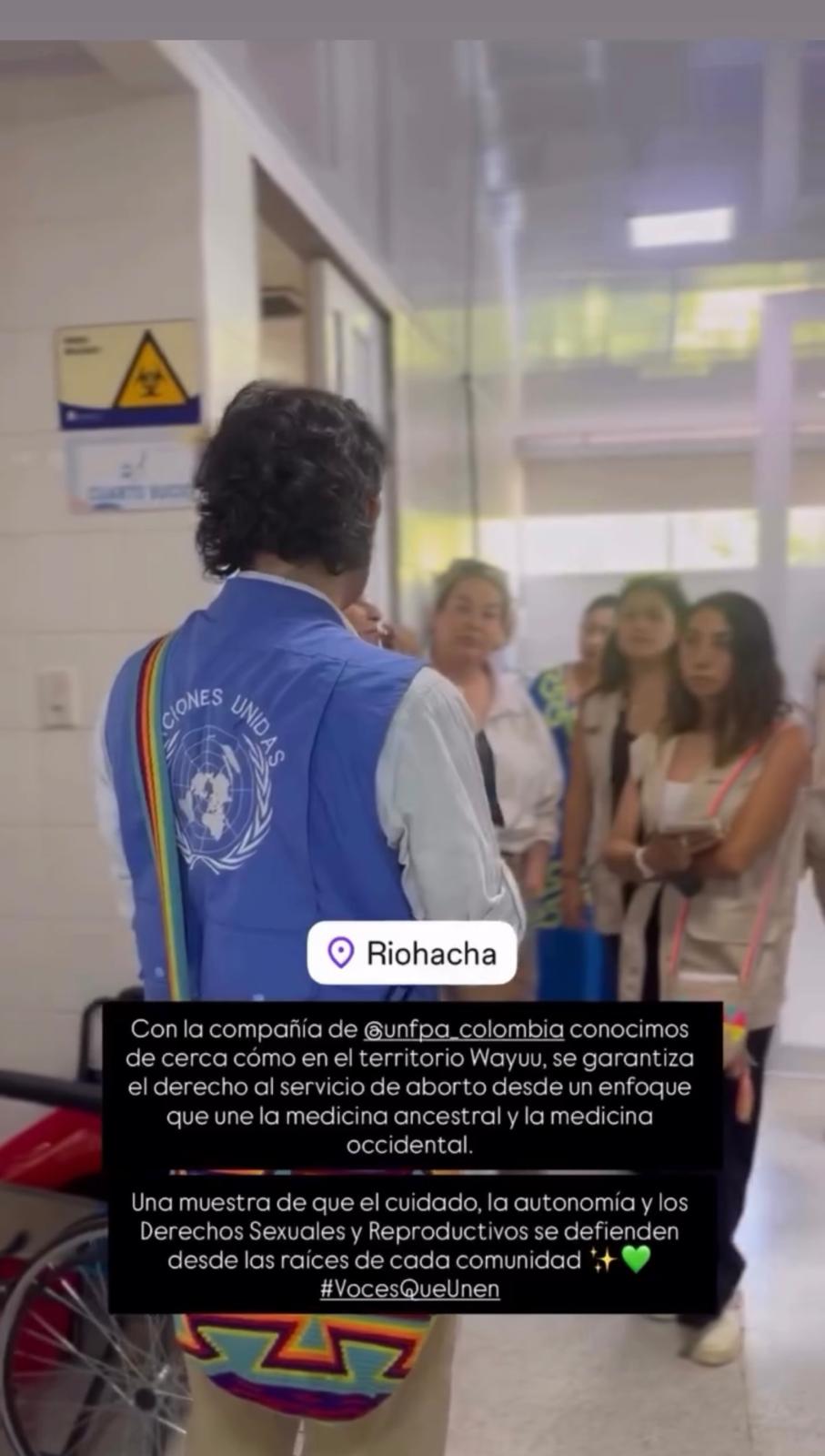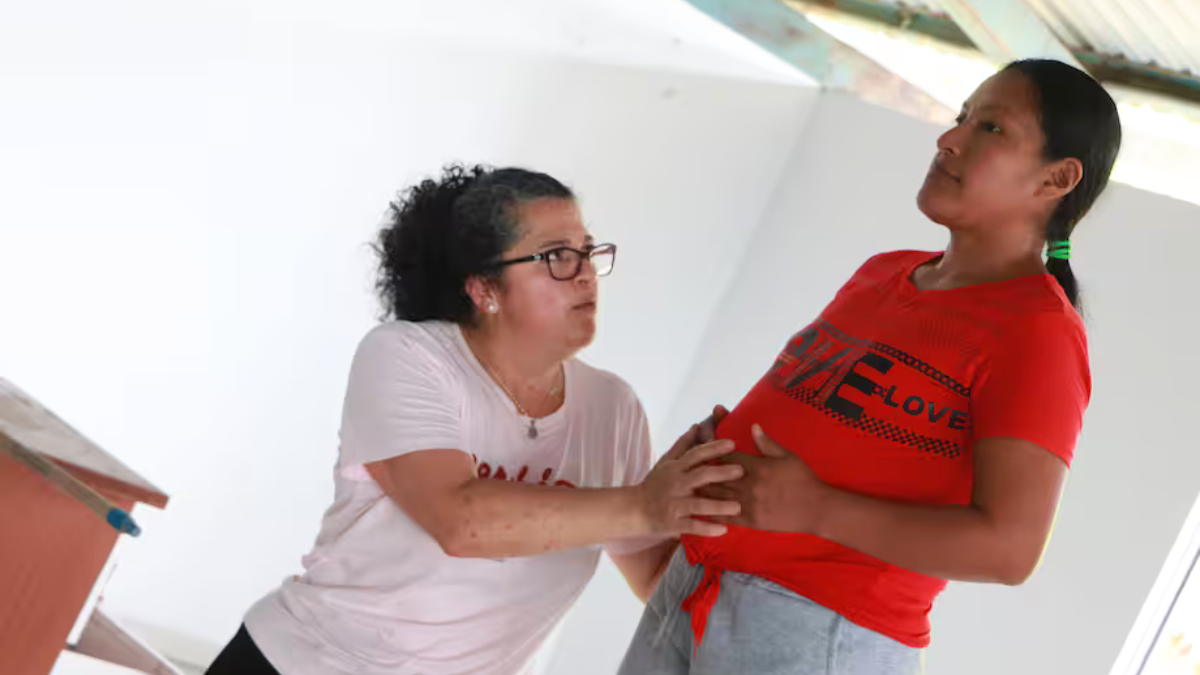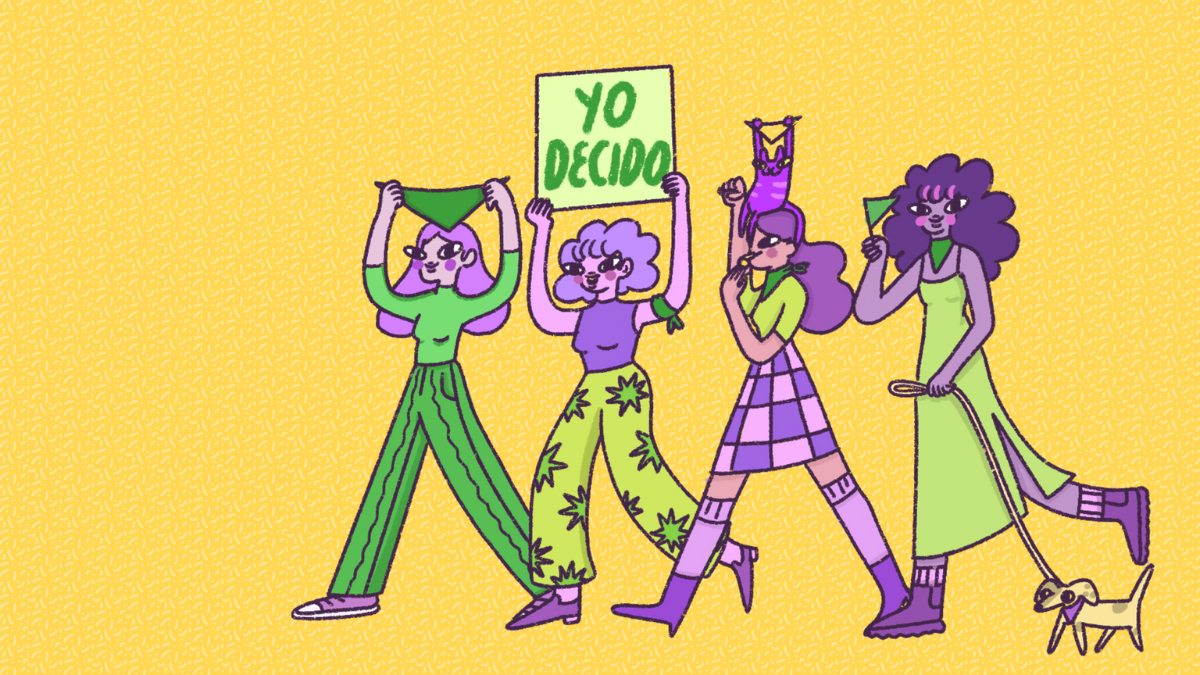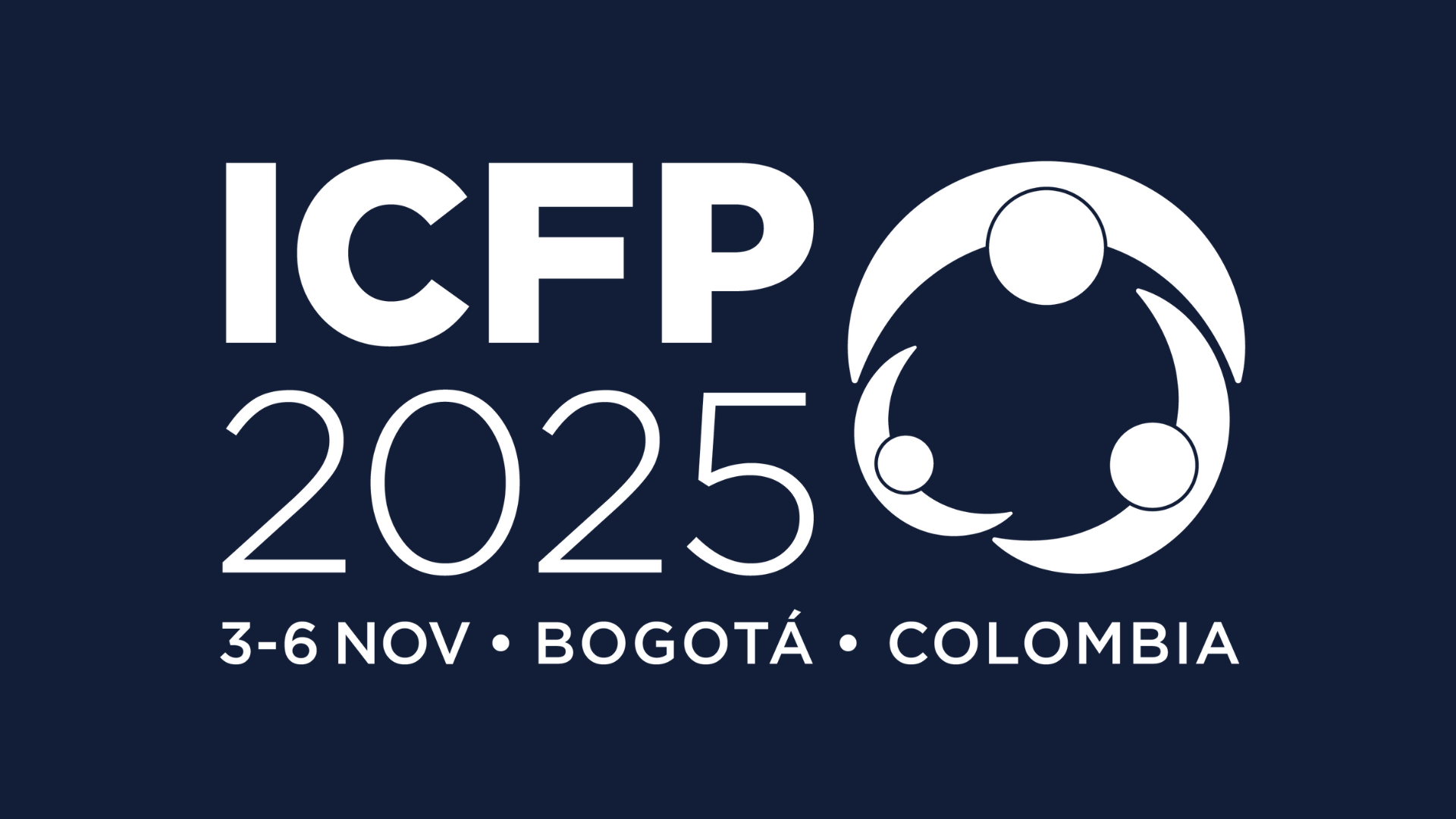Riohacha,
Colombia
From Bicycles to Birthing Practices: How Riohacha Boldly Upholds Reproductive Health and Rights
An ICFP 2025 Blog From the FPNN Reporting Trip Across Colombia
Bogotá
“Bogotá Is Ready to Welcome the Global SRHR Community for ICFP 2025”
Cali
“In Cali, Cultural Knowledge and Community Partnerships Drive Health Equity”
Guapi
“Guapi: Where Rivers, Rhythm, and Resilience Shape Sexual and Reproductive Health”
Aracataca
“In Aracataca, Local Educators, Young People, and Families Lead SRHR Transformation”
Riohacha
“From Bicycles to Birthing Practices: How Riohacha Boldly Upholds Reproductive Health and Rights”
Riohacha, Colombia – During the recent Family Planning News Network (FPNN) reporting trip across Colombia, our team visited Riohacha, a vibrant coastal city set amid striking desert landscapes near the Venezuelan border, and the capital of La Guajira, known for its Wayuu indigenous culture.
Hosted by our partners at UNFPA, we gathered in a community safe space, where we were introduced to a variety of individuals advancing sexual and reproductive health and rights (SRHR) and combating gender-based violence through innovative, locally driven initiatives.
Here are some of those inspiring stories! ⬇⬇⬇
Bicycles as a Lifeline of Hope and Survival
In La Guajira, a group of women uses bicycles to reach communities, deliver vital information on sexual and reproductive health, and respond to cases of gender-based violence. This is the Biciempoderadas program.
“In the beginning, we had basic cycling classes, and this was a very meaningful experience for us, since some of us had never had the opportunity to ride a bicycle in our lives,” one Biciempoderadas member explained.
“[This] allowed us to break down the barriers that women have faced for years and also to reach out to communities and create cycles together. This empowers us and allows us to bring life-saving information, gender-based survival, and sexual and reproductive rights to every corner of the district.”
One woman shared that when she was experiencing domestic violence, Biciempoderadas inspired her to seek financial independence so she could leave that situation. She went on to launch a small business making pesanía (handcrafted items) through which she supports her children. Now, she is a trained leader of Biciempoderadas.
“Today, I can say that many routes have been activated, lives have been saved, because we have been able to remove so many taboos and show that there are many women who can follow.”
Beyond individual empowerment, the program has strengthened connections with local institutions and built trust within the community.
“When they see us arrive on our bikes—there are 10 of us in total—and they see us arrive in uniform, it makes women believe that there are still people who are there for them. They believe there are still people who defend sexual and reproductive rights, who stand up for women against violence and gender-based violence.”
To carry their message even further, Biciempoderadas members have created their own anthem—a musical expression of their mission and a reminder to those who hear it that they are not alone. Their work is not only courageous, but also an inspiring example of how creative, community-led solutions can advance SRHR in meaningful and lasting ways.
Bridging Ancestral Midwifery and Institutional Support
A midwife in the Wayuu Indigenous community shared her decades-long experience caring for mothers and newborns, blending ancestral knowledge with modern training.
She learned midwifery from her grandmother at a young age, using local tools and techniques long before formal training was available. She said, “…because back then we set it up with whatever we could find at the ranch.”
Today, she applies those skills alongside clean delivery kits and first-aid knowledge provided through partnerships with institutions like UNFPA. She carefully guides mothers through childbirth, uses warm water and ancestral remedies to ease pain, and ensures babies are safely delivered even under difficult conditions.
“When it rains a lot, that’s when I attend to births…since there’s no ambulance or access to the hospital, I take care of it myself,” she said.
A representative from I.P.S.I. Outtajiapulee, an Indigenous primary health institution in La Guajira, works closely with this midwife—and other midwives in the community—providing culturally respectful healthcare services and supporting local health and wellness initiatives.
She described how their partnership with UNFPA enabled the training of 33 midwives in the area. These midwives now lead monthly intercultural dialogues with gynecologists, pediatricians, and traditional healers.
This representative shared how geographic barriers weigh into their decisions daily when it comes to health. Traveling to certain settlements can take 6–7 hours in summer and up to 3–4 days in winter, forcing some maternal and child emergencies to be evacuated by helicopter.
Migration has also reshaped community dynamics. In settlements like Flor del Campo, where thousands of migrants now live, midwives coordinate with local authorities and NGOs to ensure vulnerable mothers and children receive care despite difficult roads and scarce resources.
The collaboration between traditional midwives and health institutions highlights how culturally rooted practices combined with institutional support, can strengthen maternal and child health in challenging conditions.
Safe Spaces, Strong Voices
Our time in Riohacha brought us face-to-face with youth and community members leading peer-to-peer SRHR initiatives, showing how knowledge and inspiration move across generations and institutions. Many of these young people are engaged in UNFPA-supported programs, including the newly inaugurated Safe Space at Hospital Nuestra Señora de los Remedios E.S.E., where they contribute as advocates and “waves of change” in their communities.
Opened in 2024, the Safe Space offers survivors and women at risk of gender-based violence comprehensive services in one location—medical and mental health care, specialized counseling, and connections to justice and protection systems. Footstep markers on the floor guide visitors to the space, where a sign on the door reads, “you have the right to a life free from gender-based violence,” in both Spanish and Wayuunaiki, the language of the Wayuu people.
La Guajira continues to face high rates of gender-based violence, particularly among migrant and Indigenous women and adolescent girls. In response, hospital staff and local partners, alongside youth leaders, are working to ensure services are timely, reliable, and culturally responsive.
Lessons for the Global SRHR Community
For SRHR professionals around the world, Riohacha reminds us:
- Culturally rooted, community-led approaches work. Combining local knowledge—like Wayuu midwifery—with formal health services builds trust and strengthens impact.
- Youth drive change. Young leaders in UNFPA-supported programs spread SRHR awareness and inspire each other to think big.
- Holistic services save lives. Safe spaces offering medical, mental health, legal, and protection support address diverse needs, especially for migrant, Indigenous, and adolescent populations.
Whether cycling through neighborhoods, attending births, or caring for patients at a hospital, everyone we met contributes to building a safer, healthier community. This stop on FPNN’s Colombia Reporting Trip offers insight into the resilience and creativity of local leaders advancing SRHR—stories that we can all use to help inform the global discussion at ICFP 2025 this 1–6 November.
Voices on Social Media
Explore social media posts from this FPNN Colombia Reporting Trip stop below ⬇
From Riohacha with Love
See snapshots from our time in Riohacha where community members shared their stories with FPNN journalists ⬇
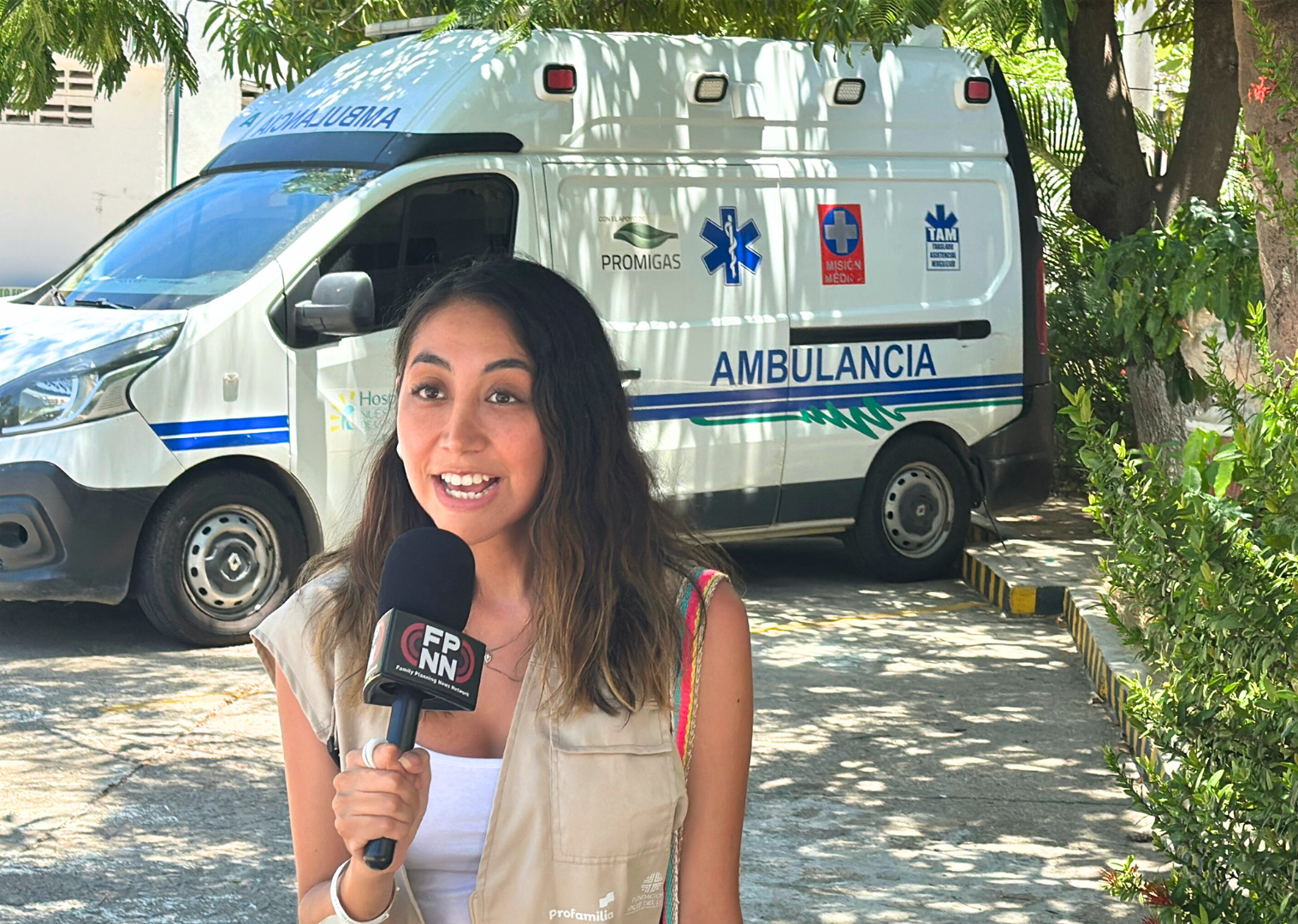
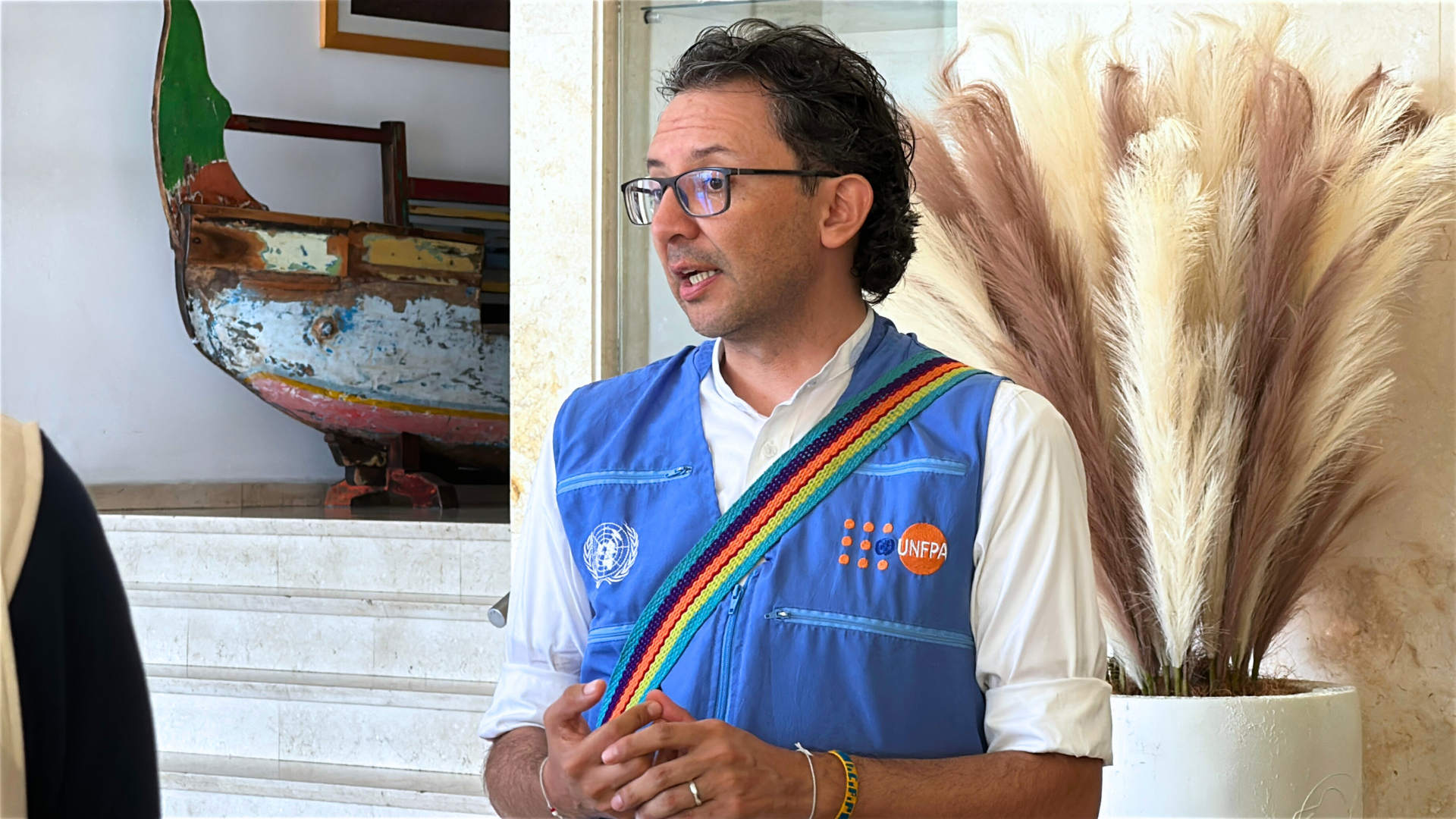
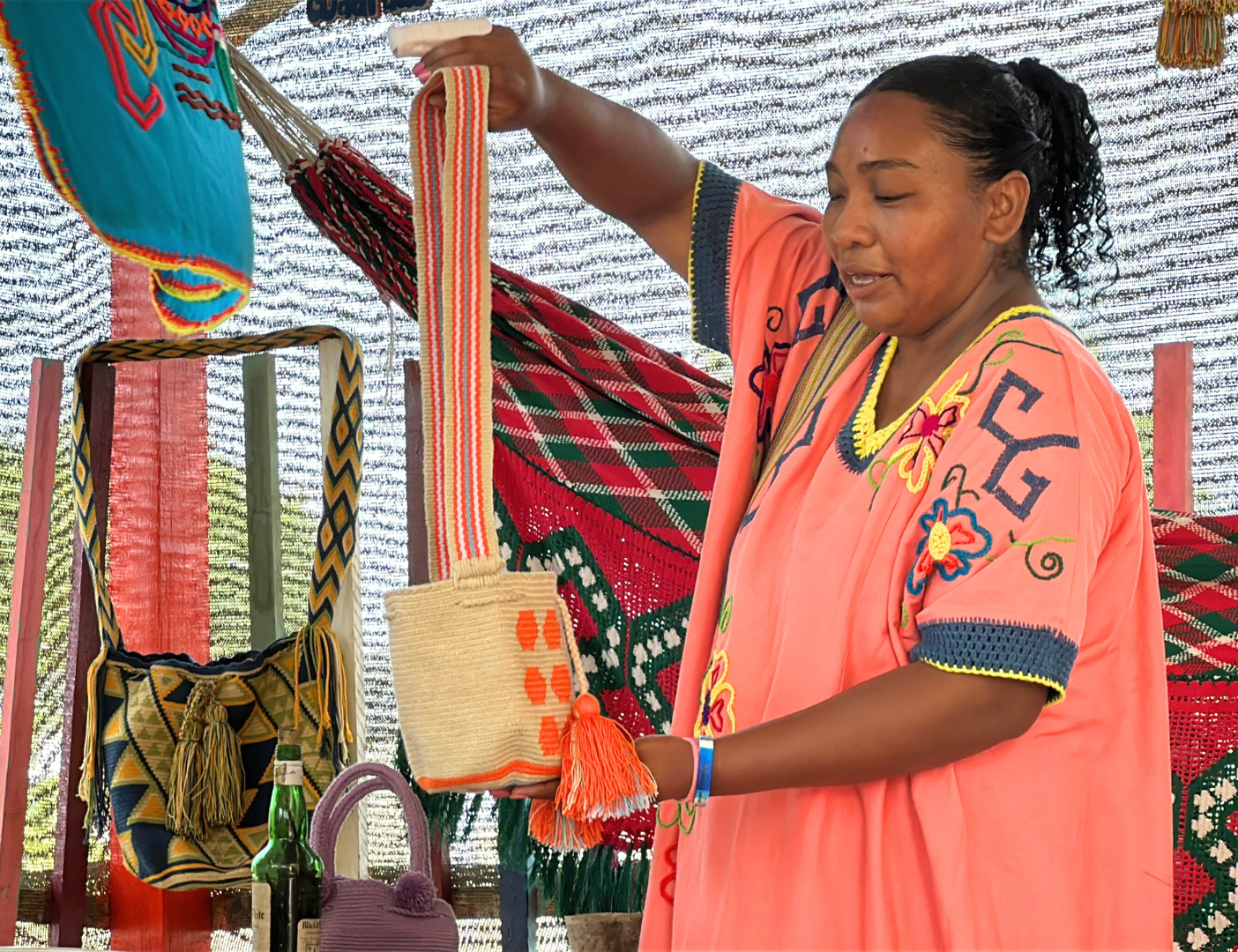
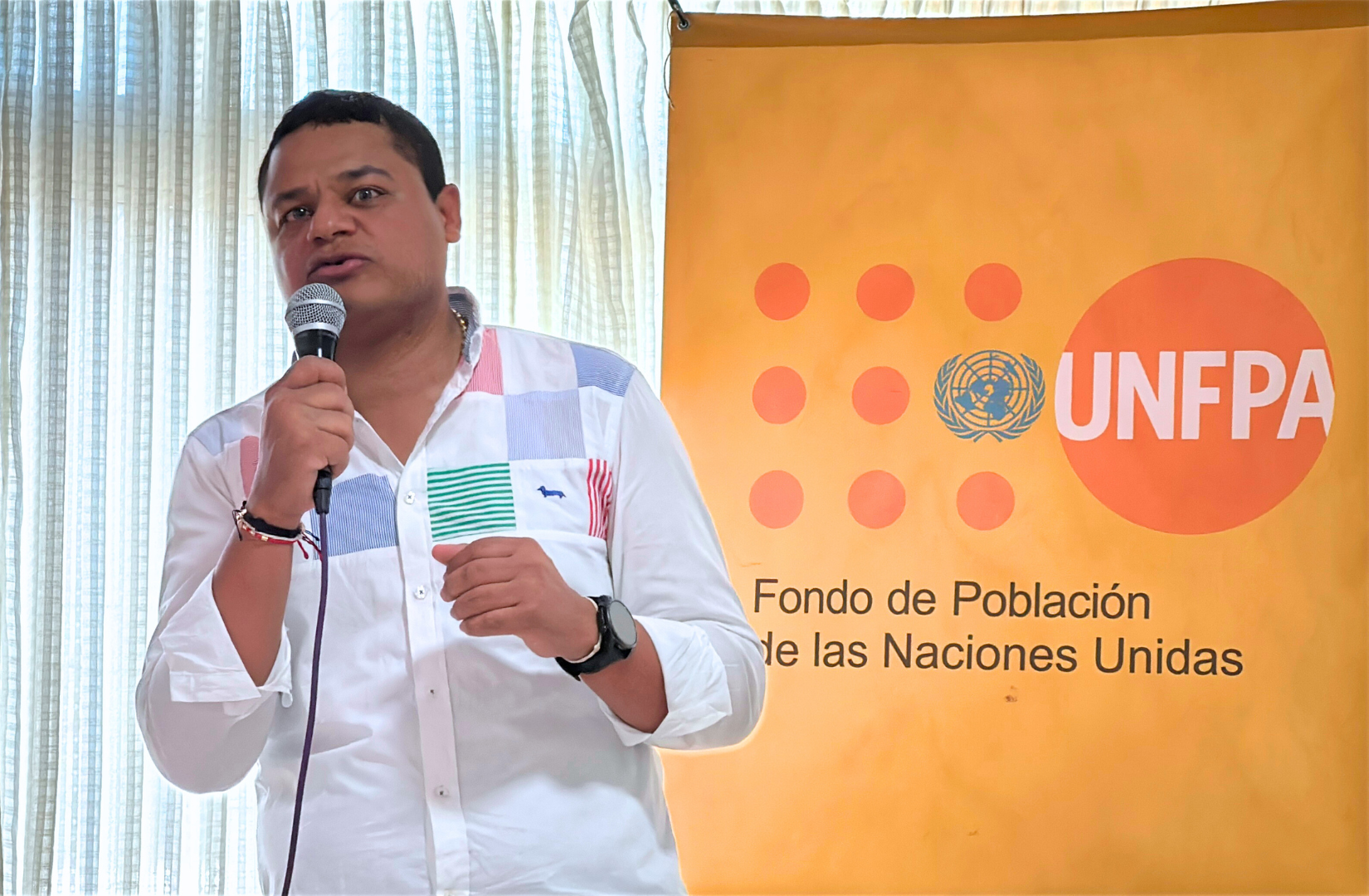
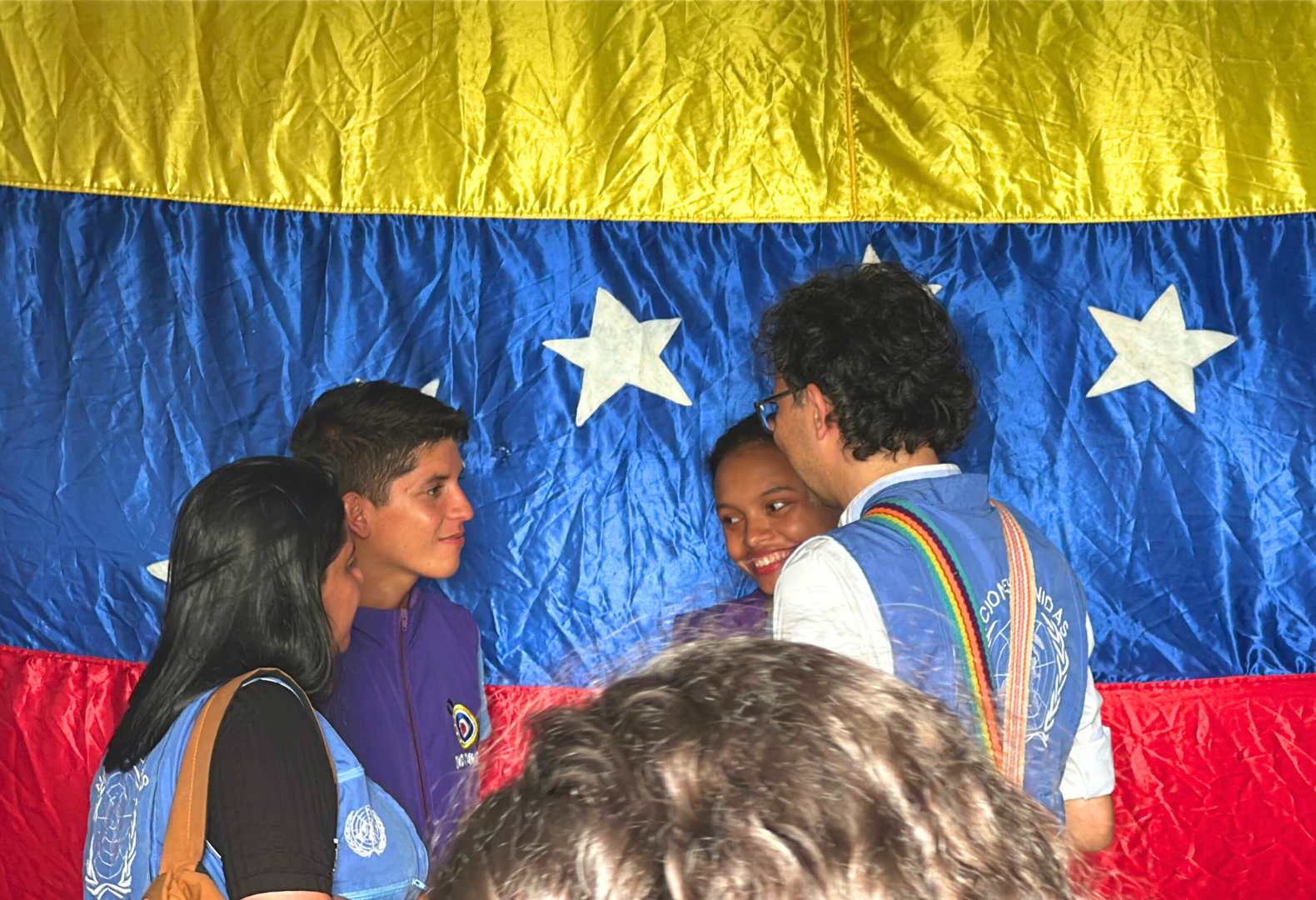
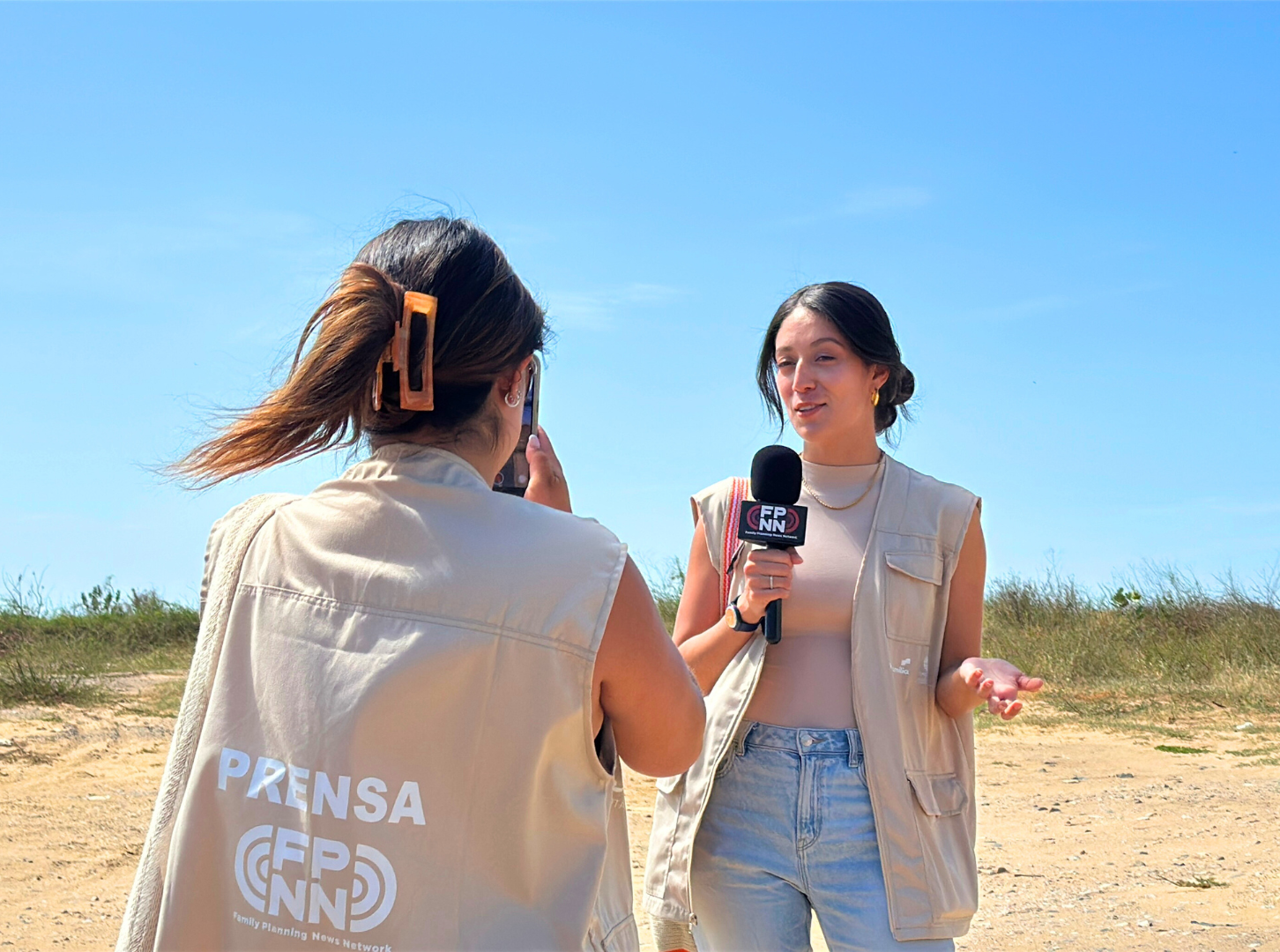
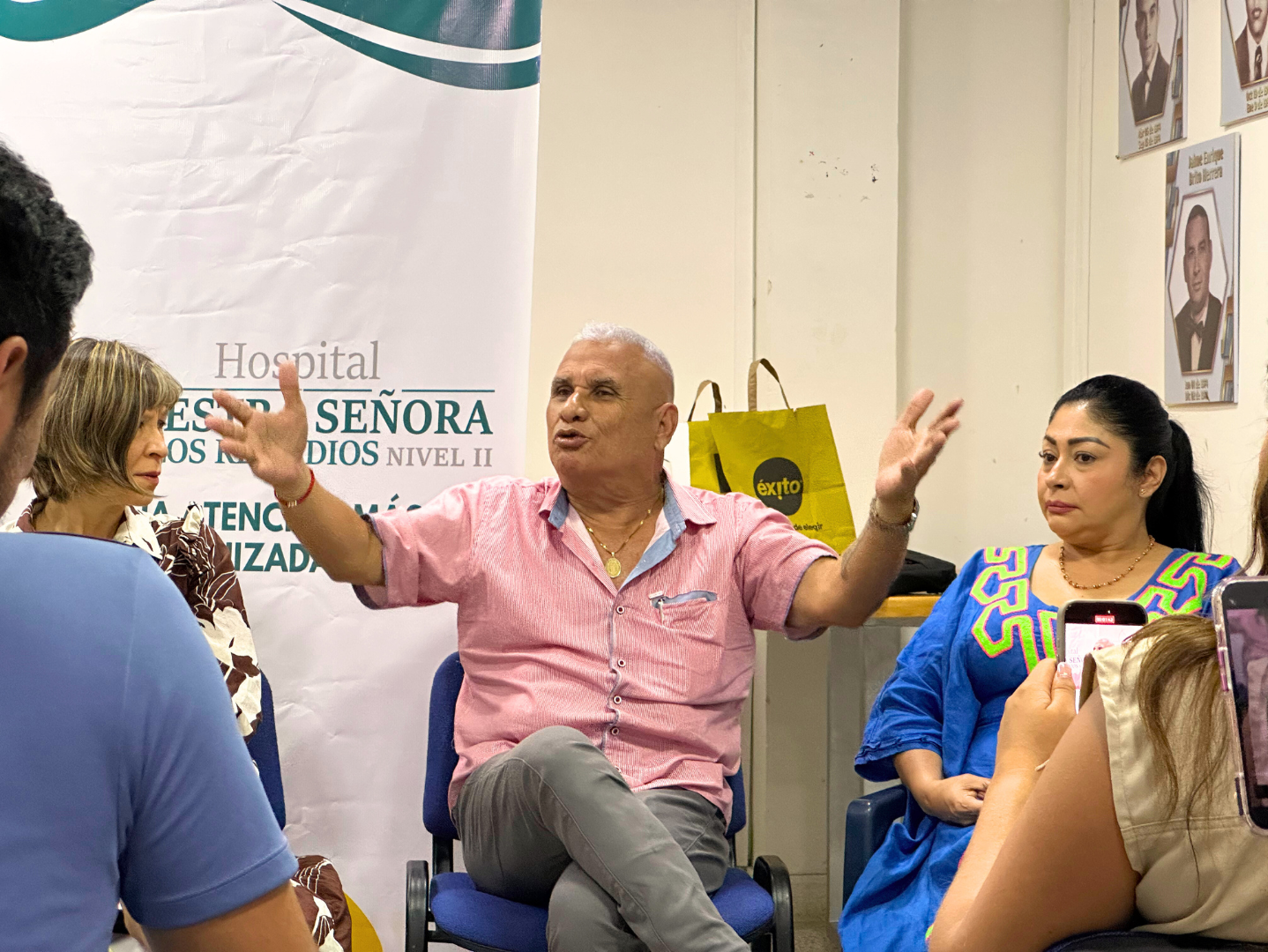
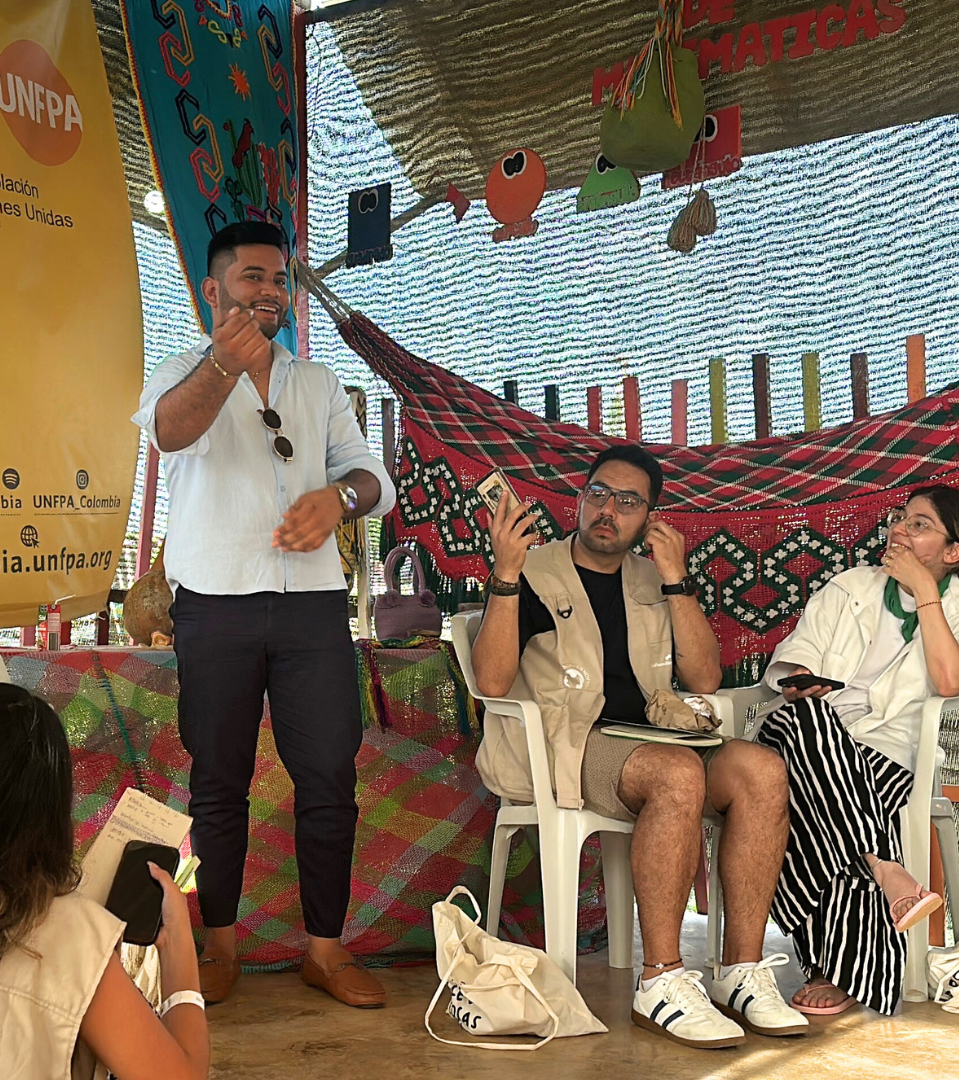
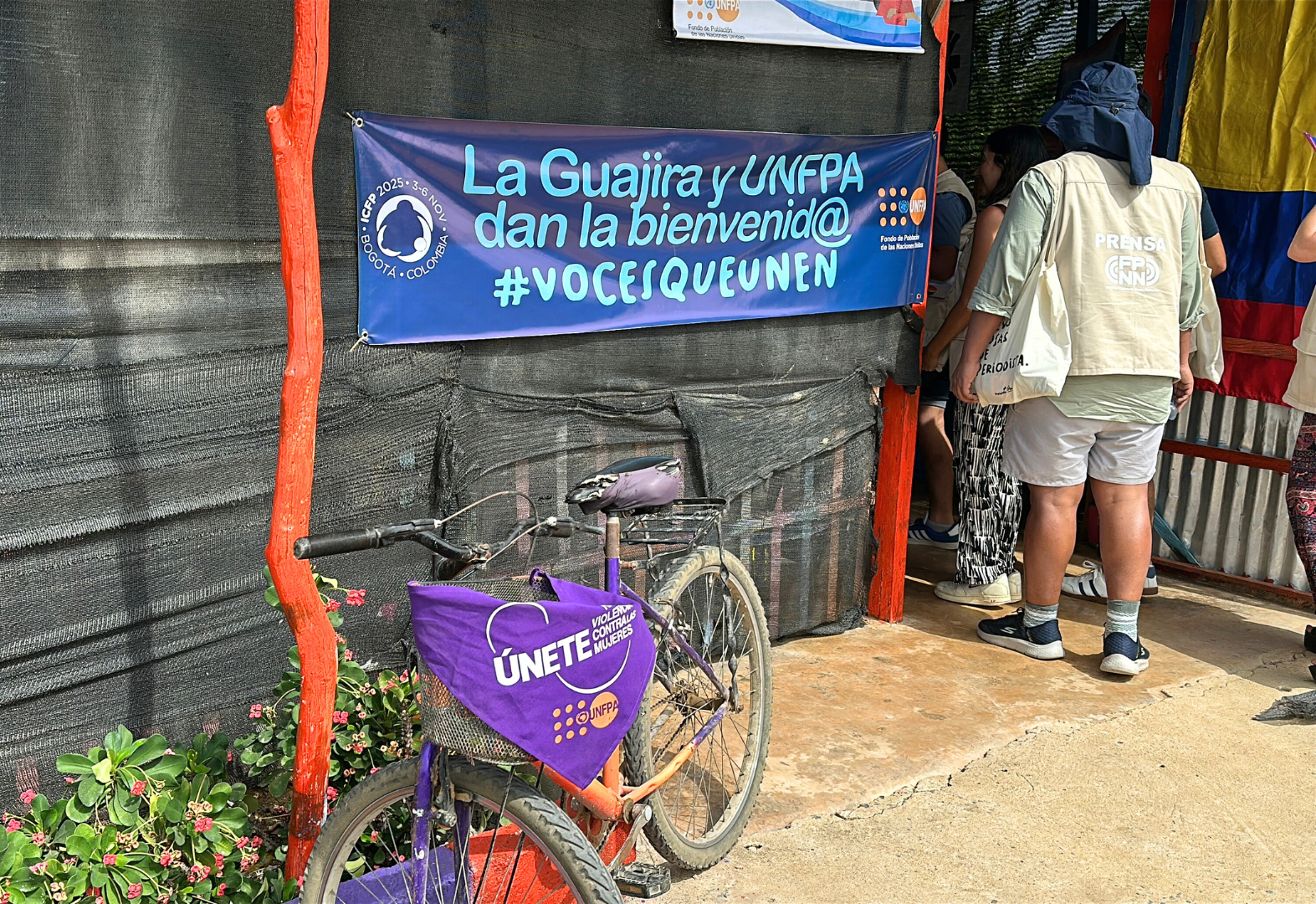
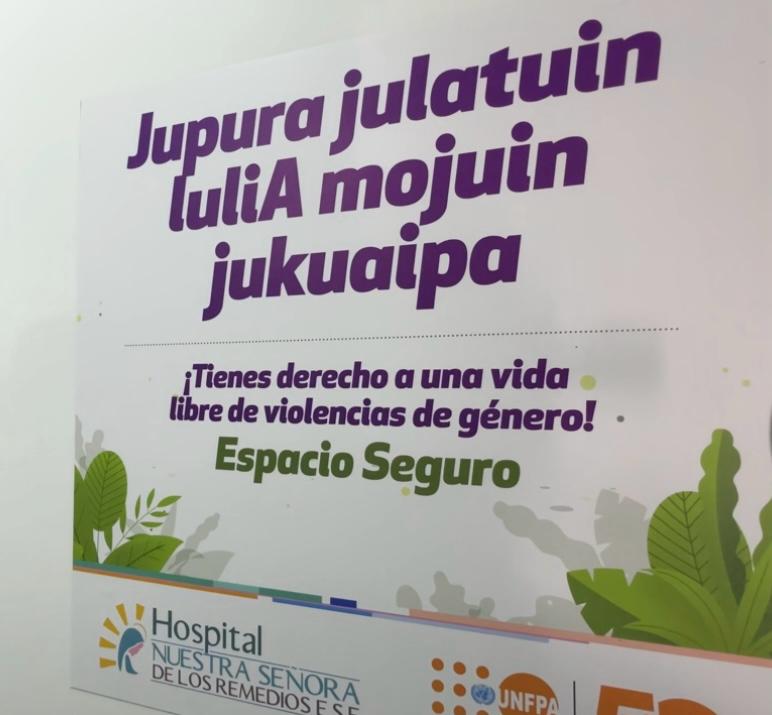
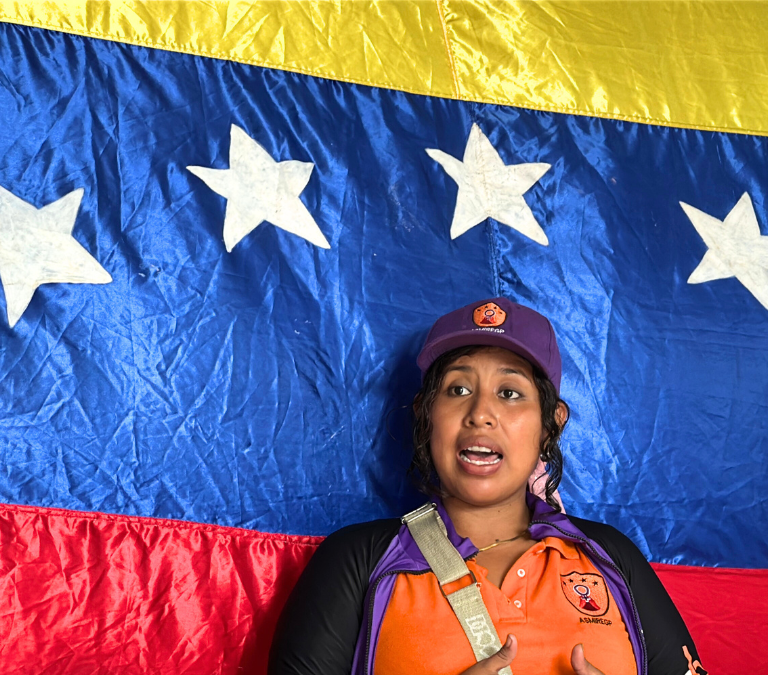
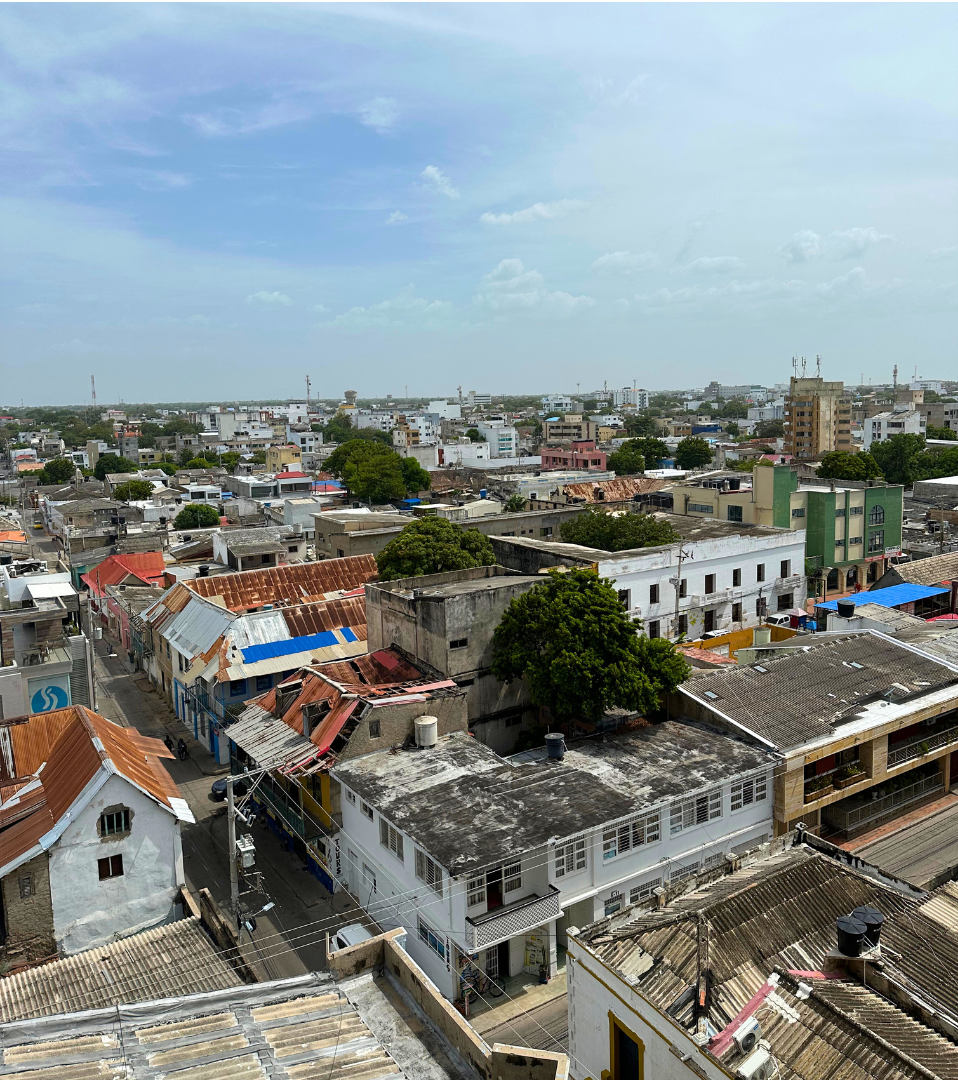
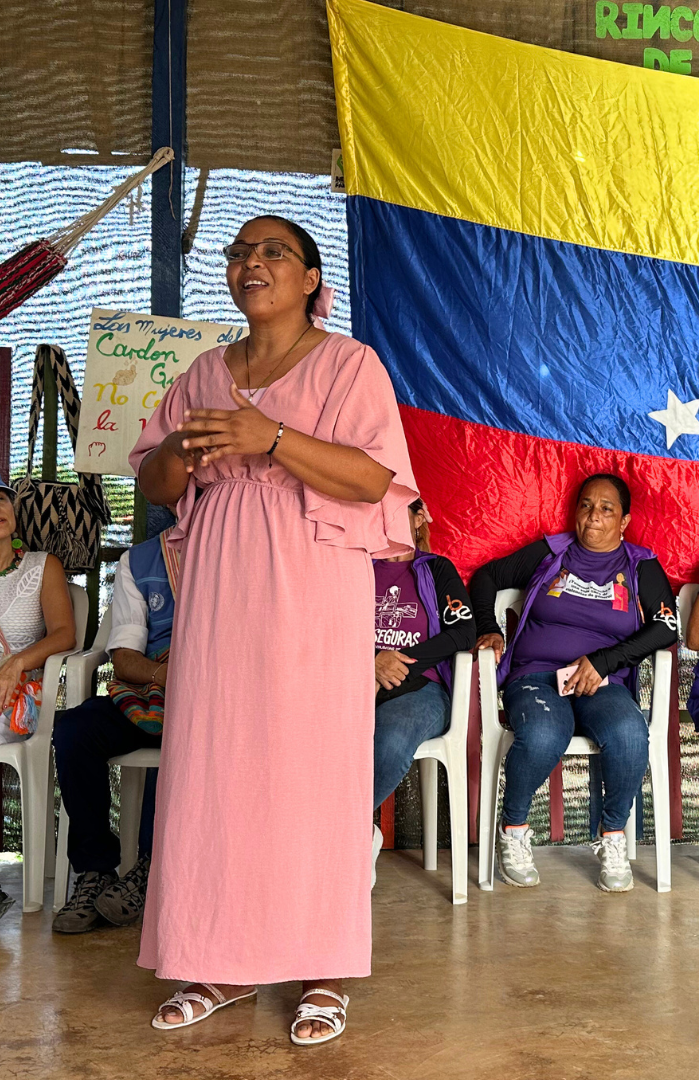
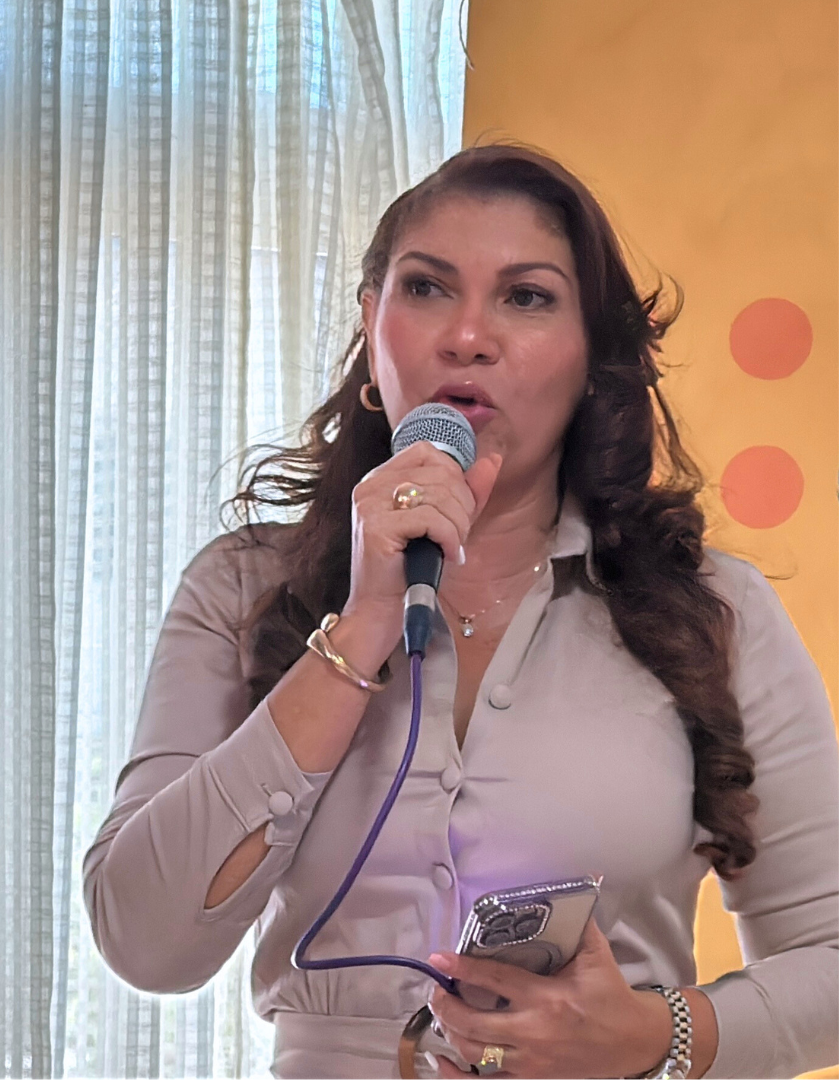
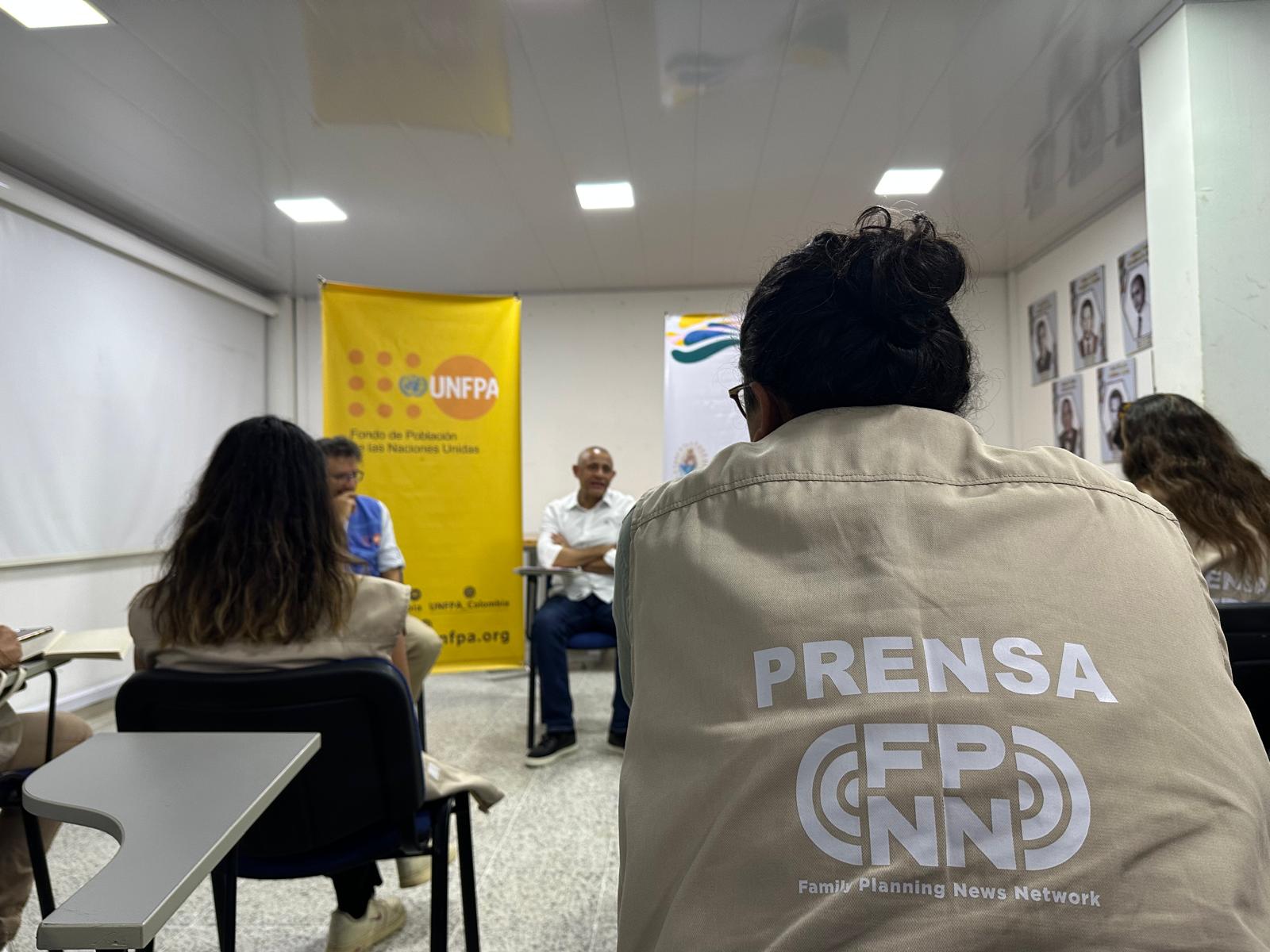
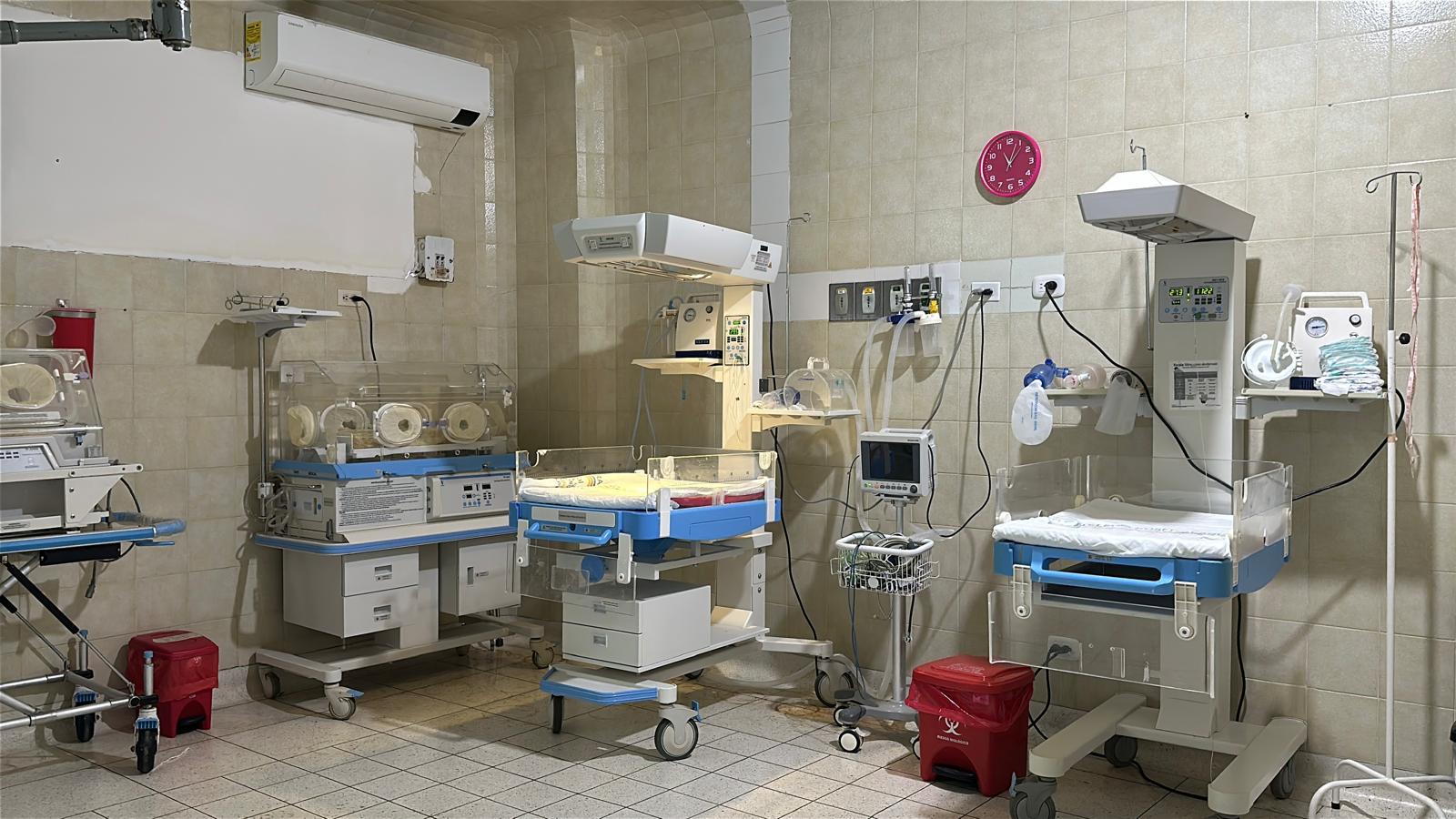
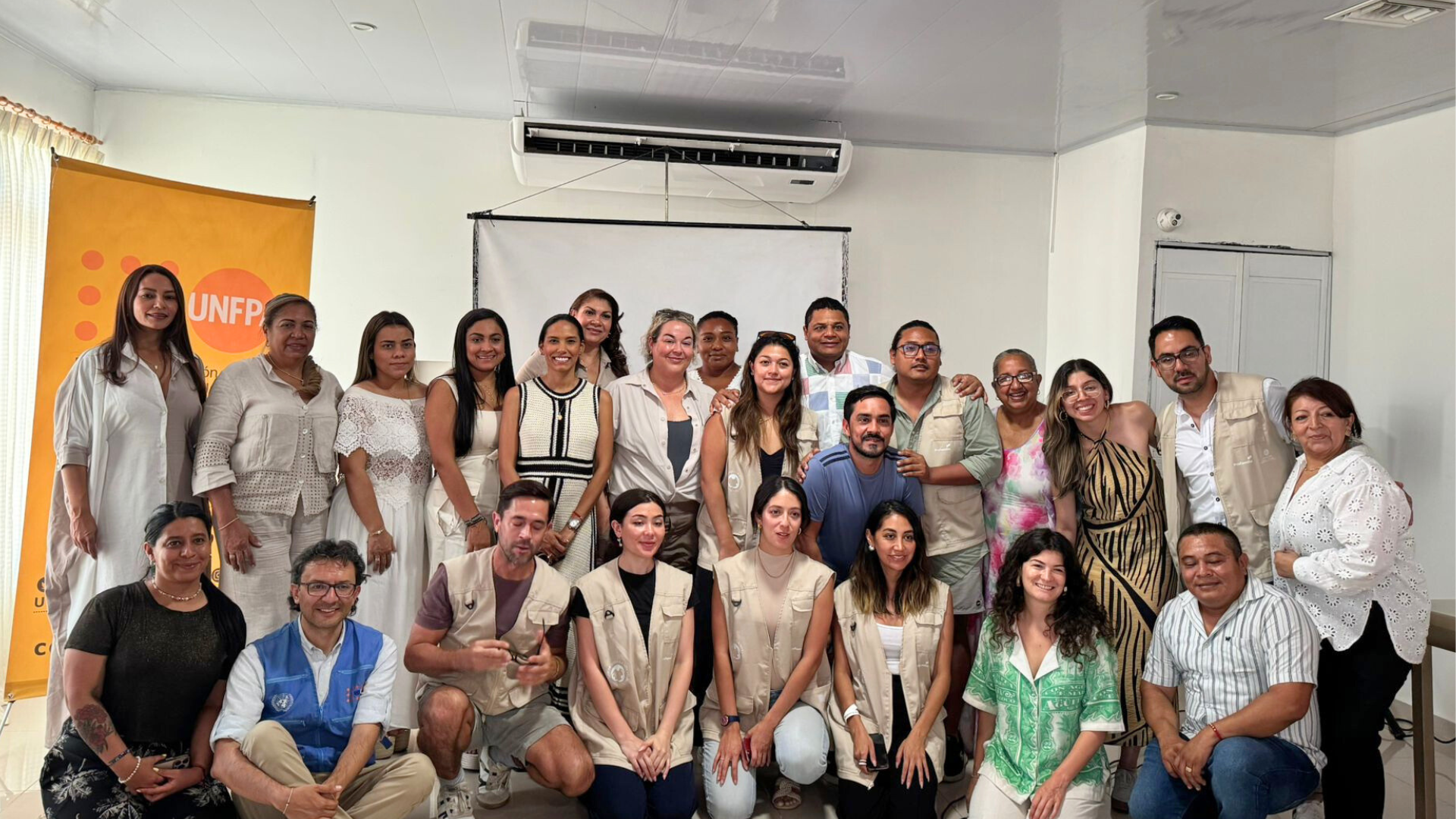
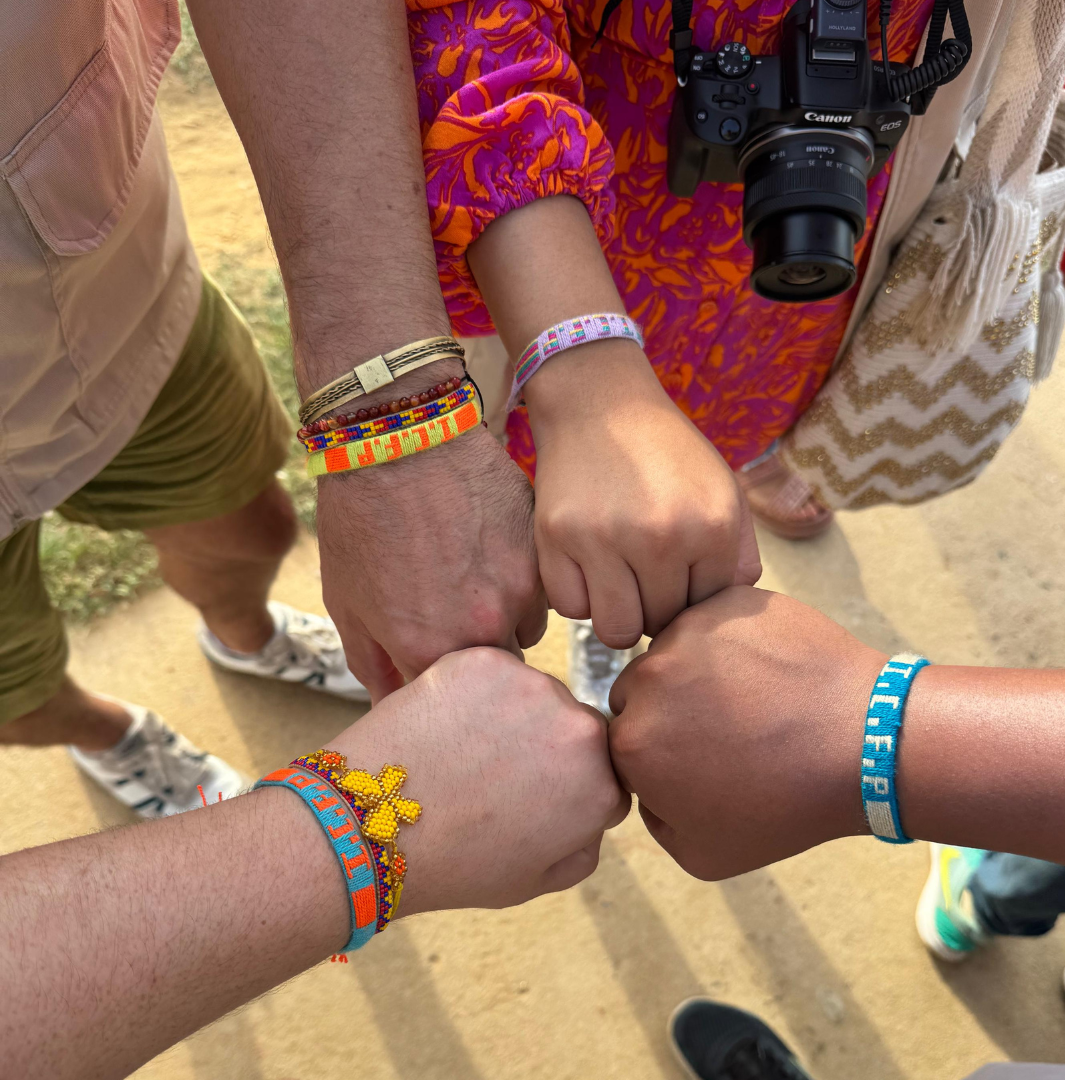
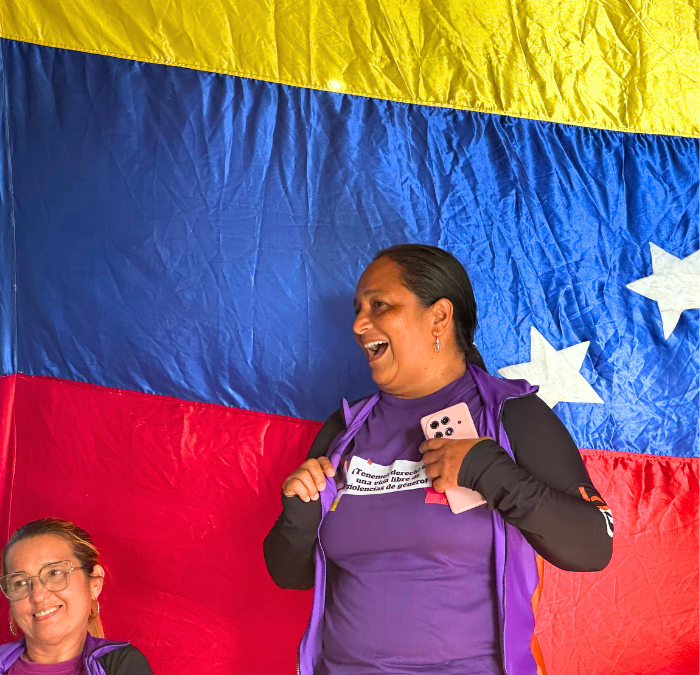
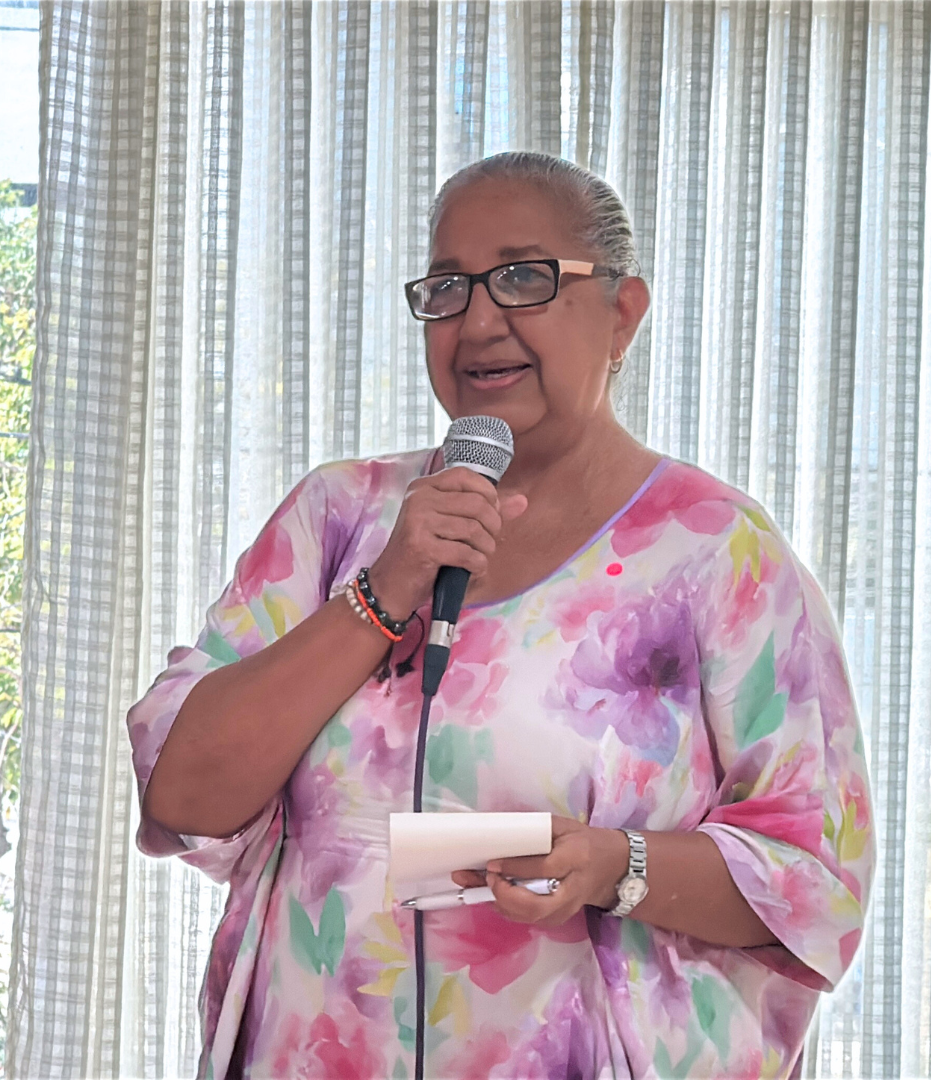
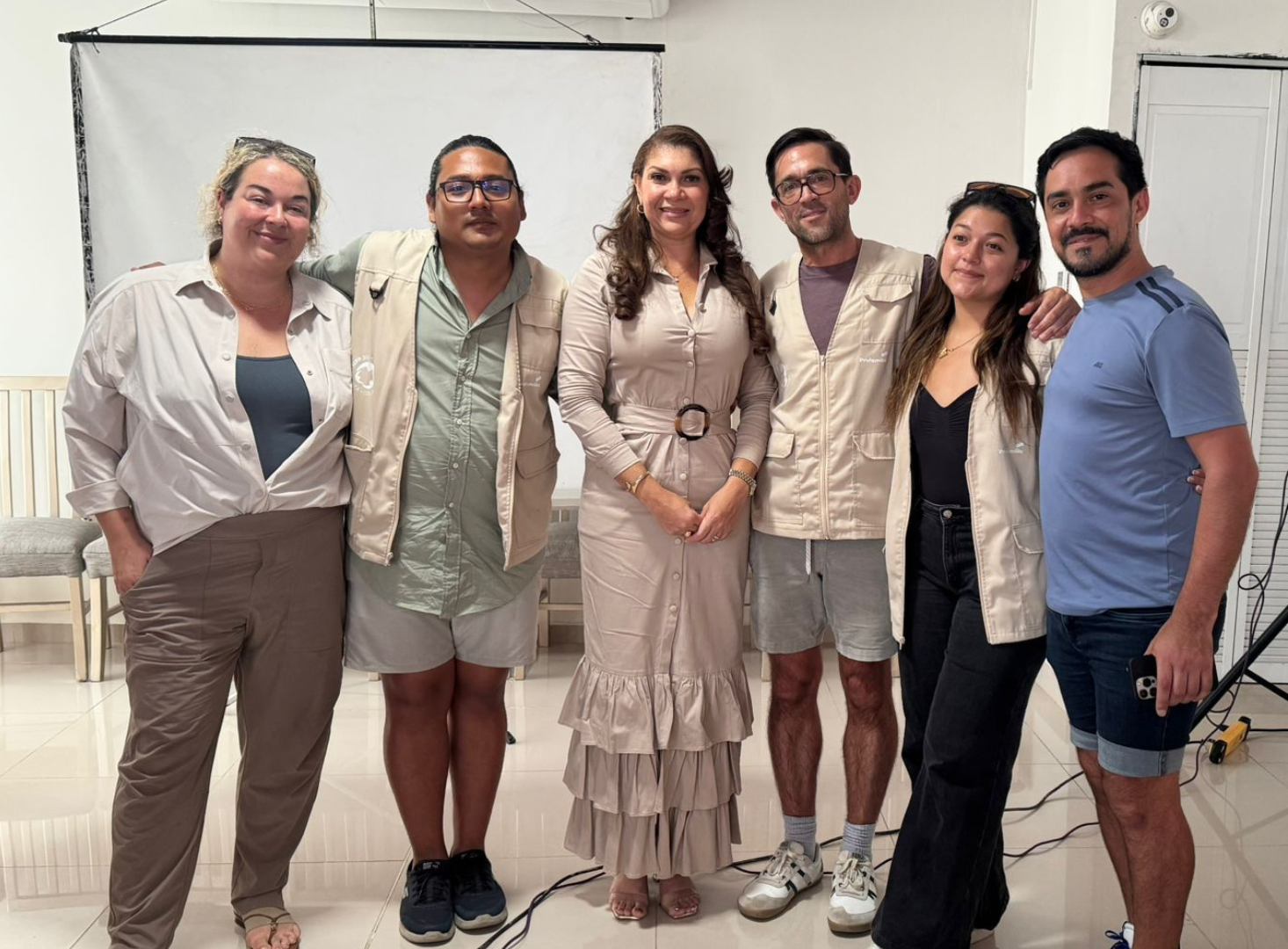
Stories from the FPNN journalists →
Giving Birth in the Jungle and the Desert: The Midwives Who Save Lives in Nariño and La Guajira
By Luisa Fernanda Orozco
“…the survival of a woman and her baby often depends on a cell phone with intermittent signal, a network of indigenous life messengers, and knowledge that combines tradition and Western medicine.”
Voices That Unite: A Journey Through Family Planning in Colombia
By Laura Gutiérrez
“In territories where access is slow and unequal, the bicycle becomes a symbol of freedom and dignity.”
Related Resources →
#ICFP2025 is Here
ICFP is for Everyone. There’s still time to register for this year’s conference happening 1–6 November in Bogotá, Colombia! Make connections, find solutions, and join the global SRHR conversation at ICFP.
Can’t make it in person? No problem. You can register to attend ICFP 2025 in person or virtually—and don’t miss ICFP LIVE, our completely free content open to all!
FPNN Amplifies Solutions
The Family Planning News Network (FPNN) is a global platform connecting journalists and communities to share local stories and solutions in SRHR—driving dialogue, understanding, and action.
Want to get involved? FPNN is looking for partners to help expand this work. You can also join the network as a community reporter today!
